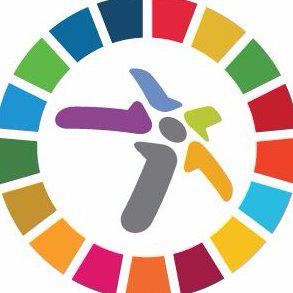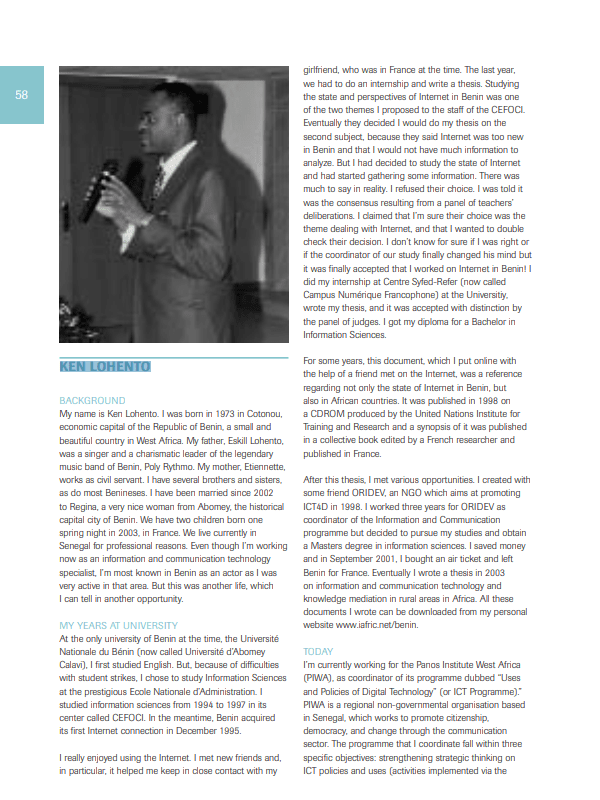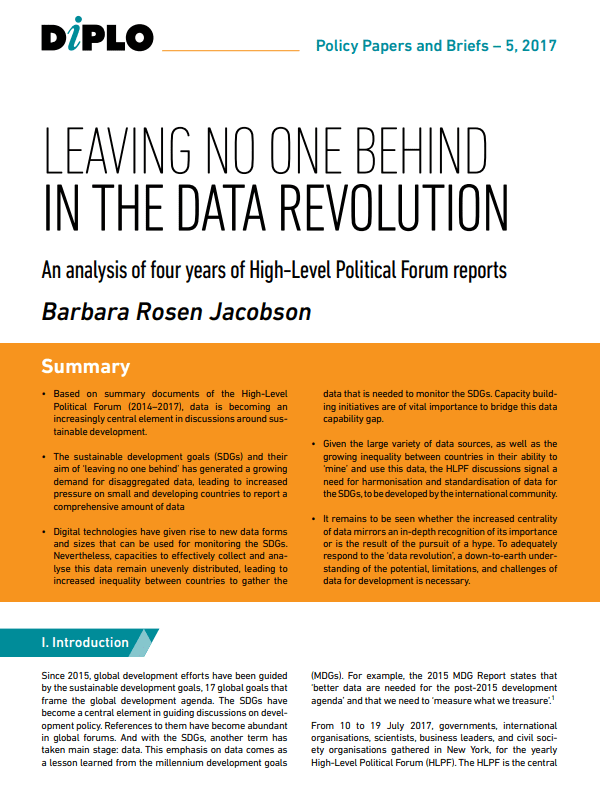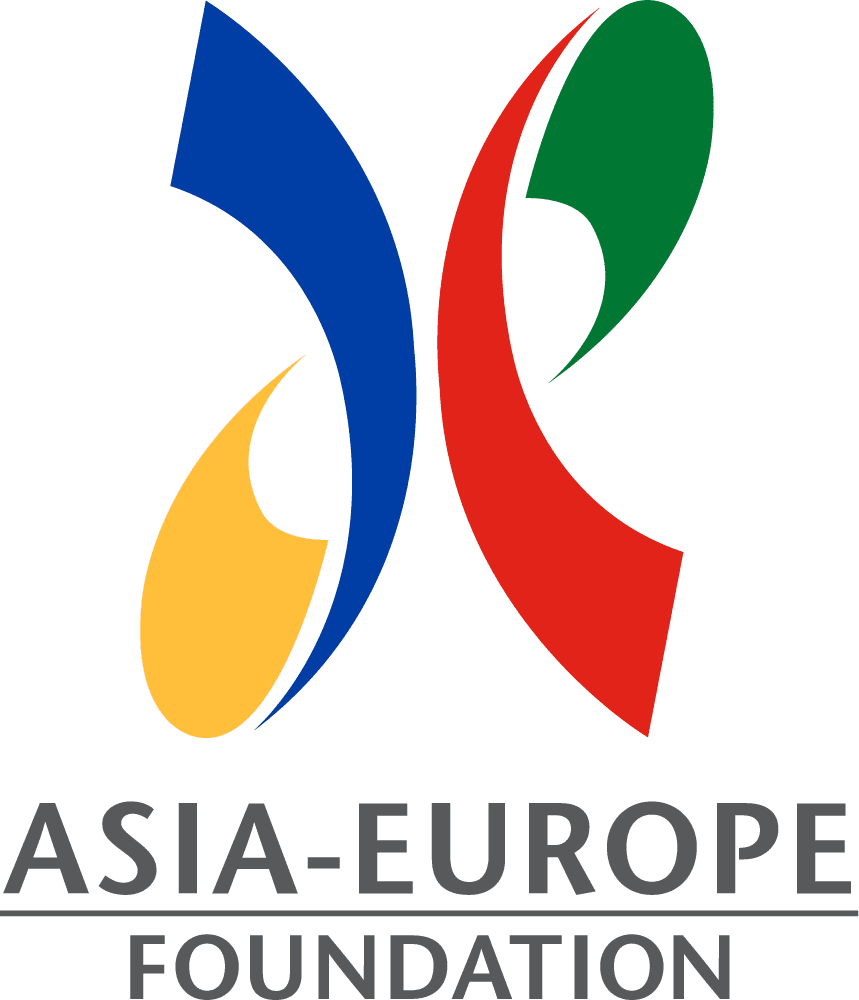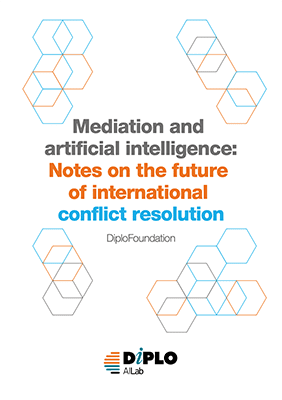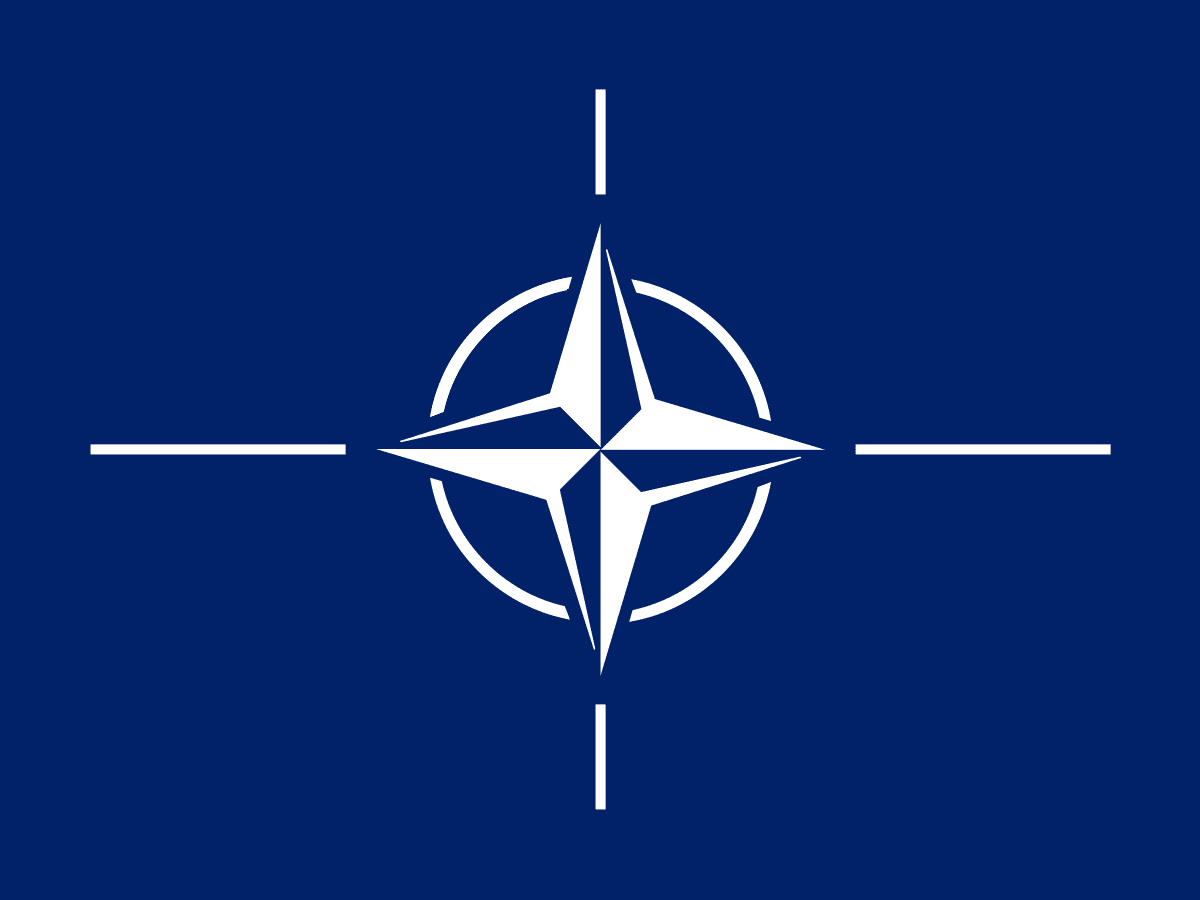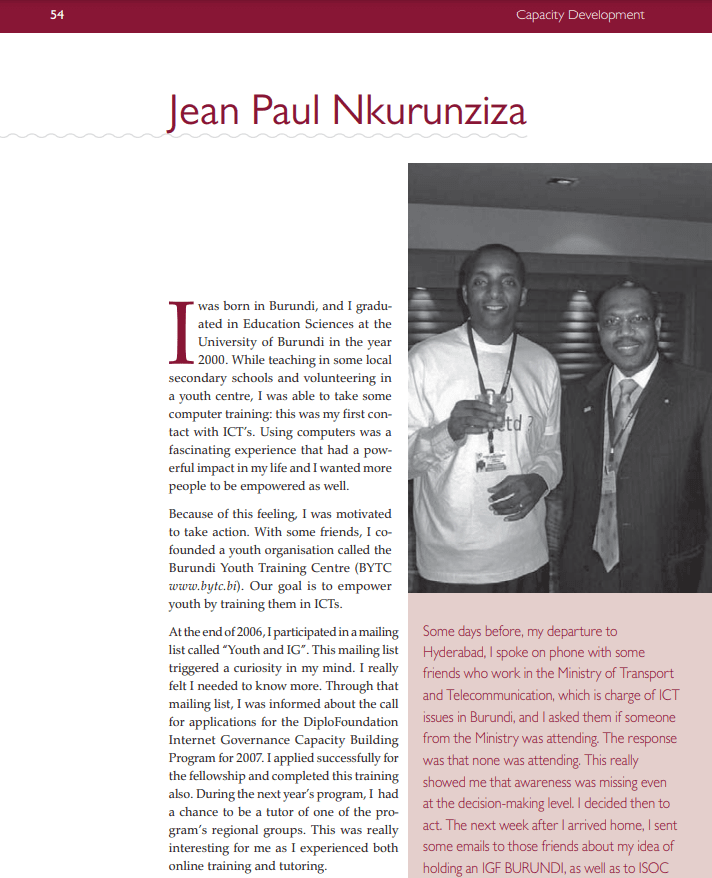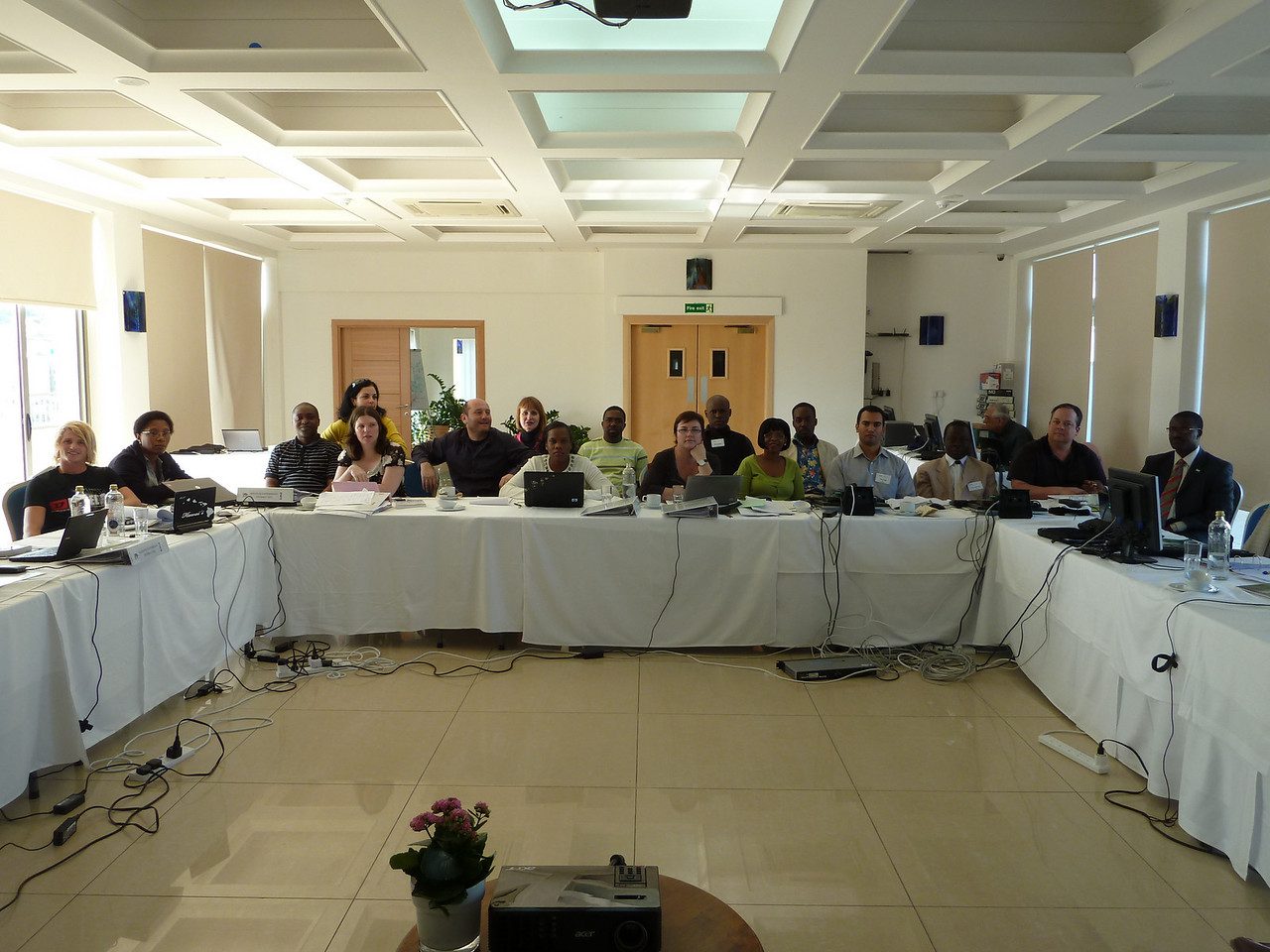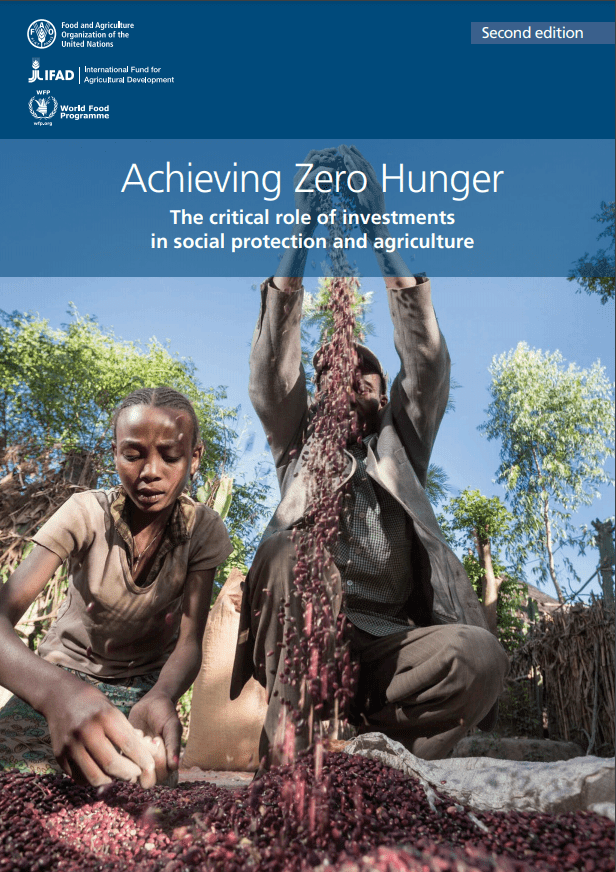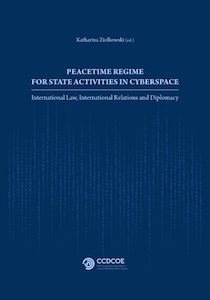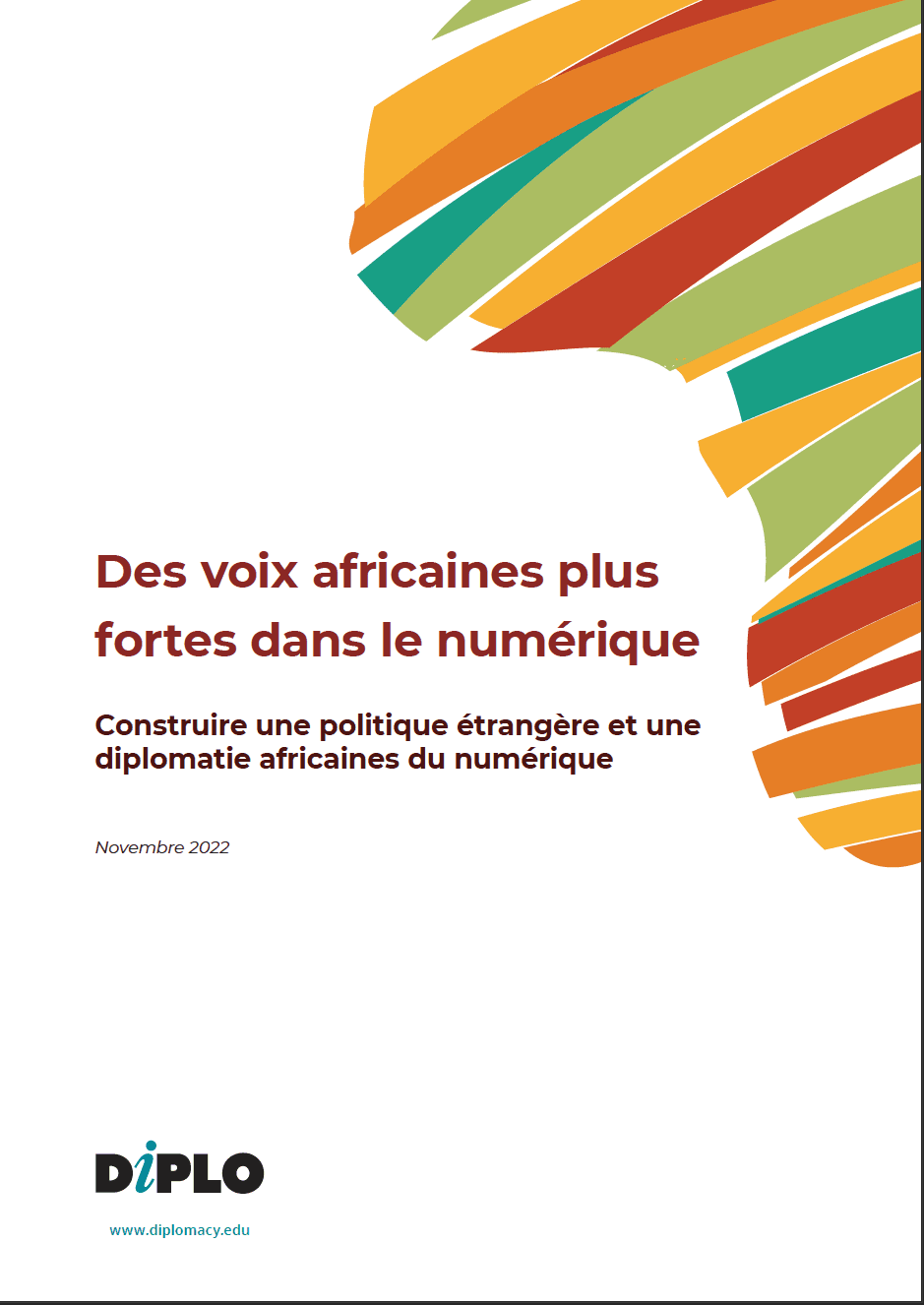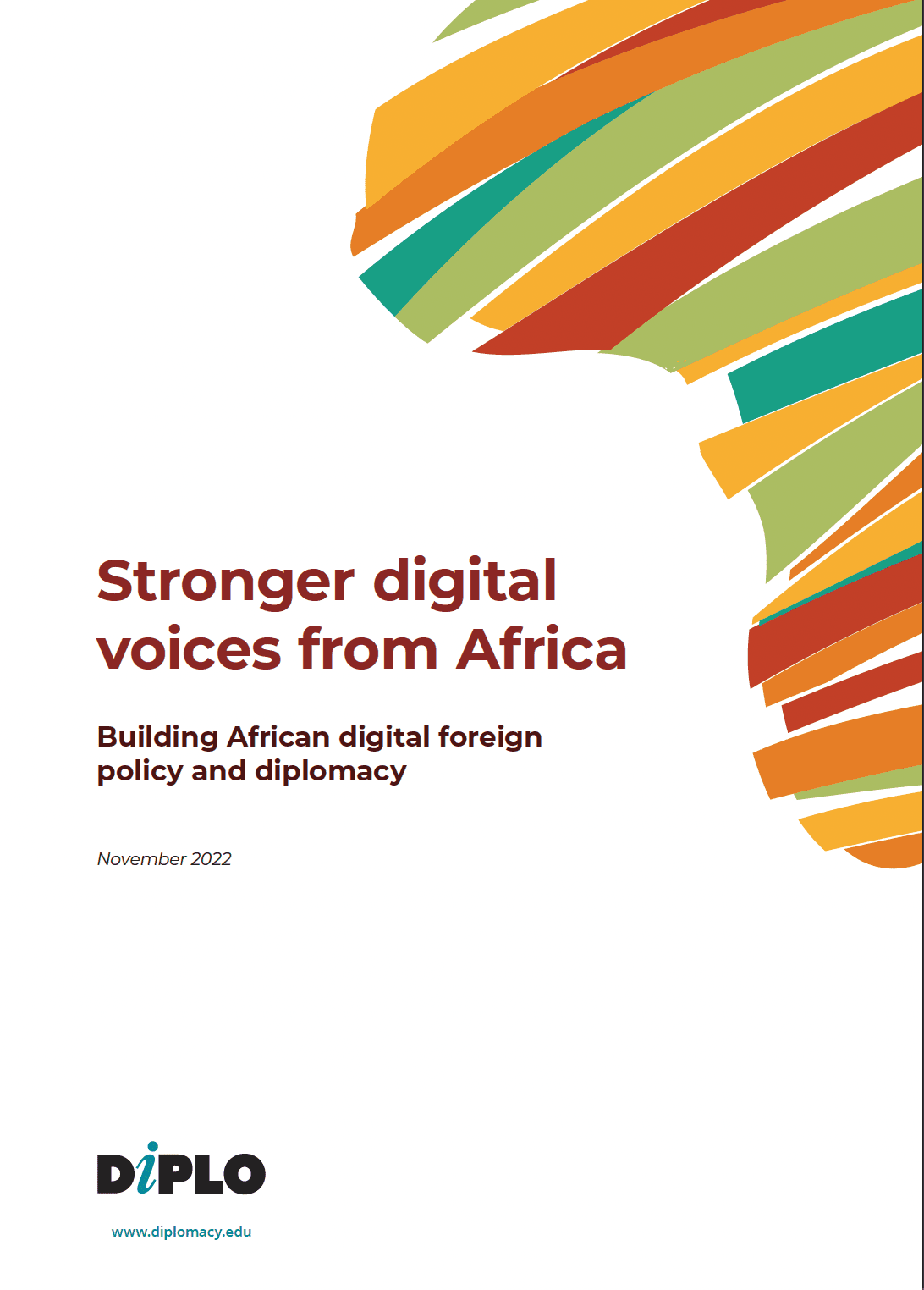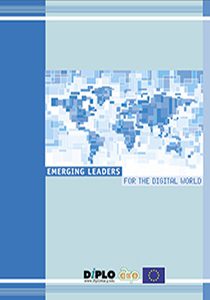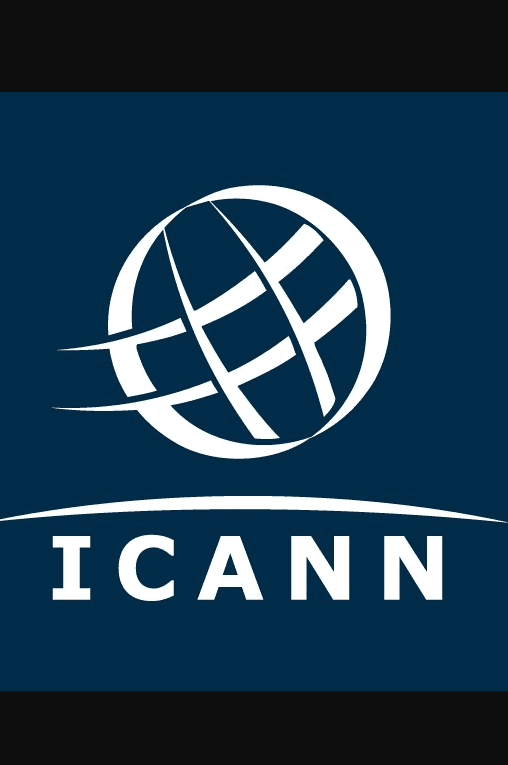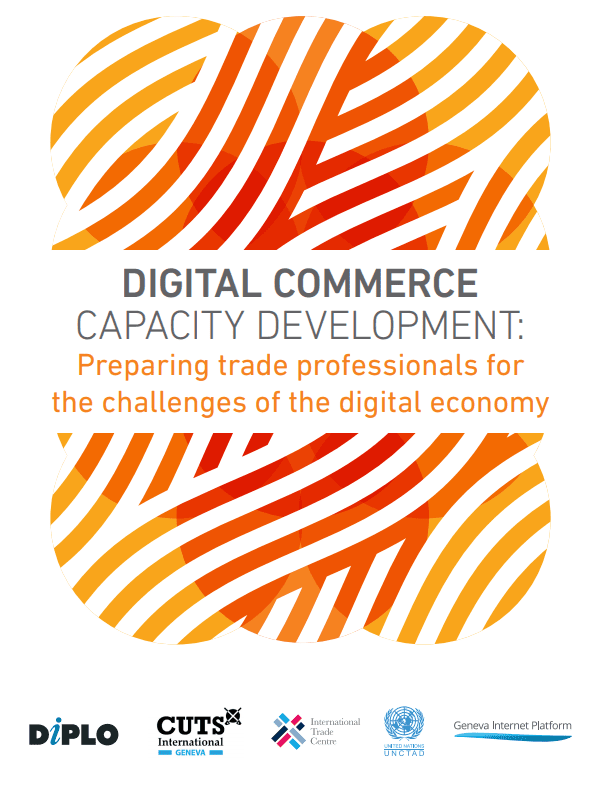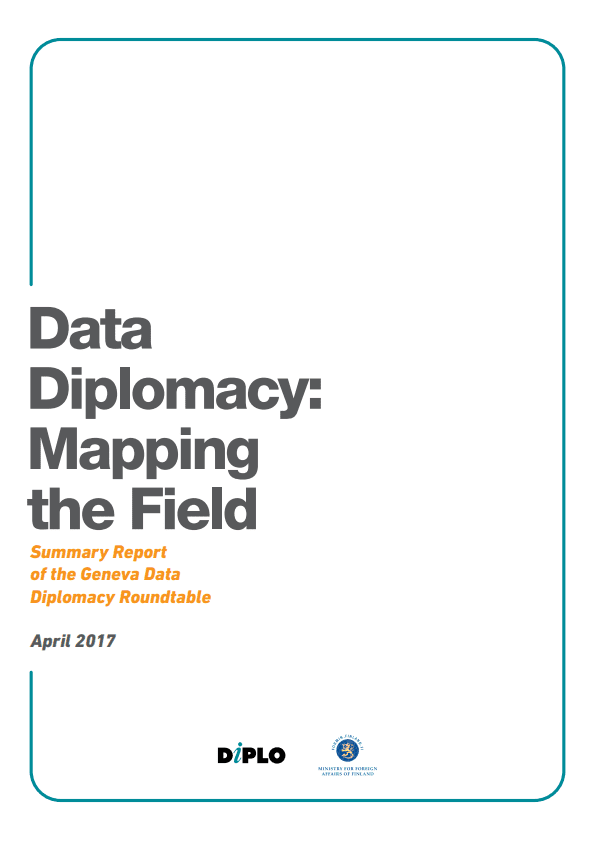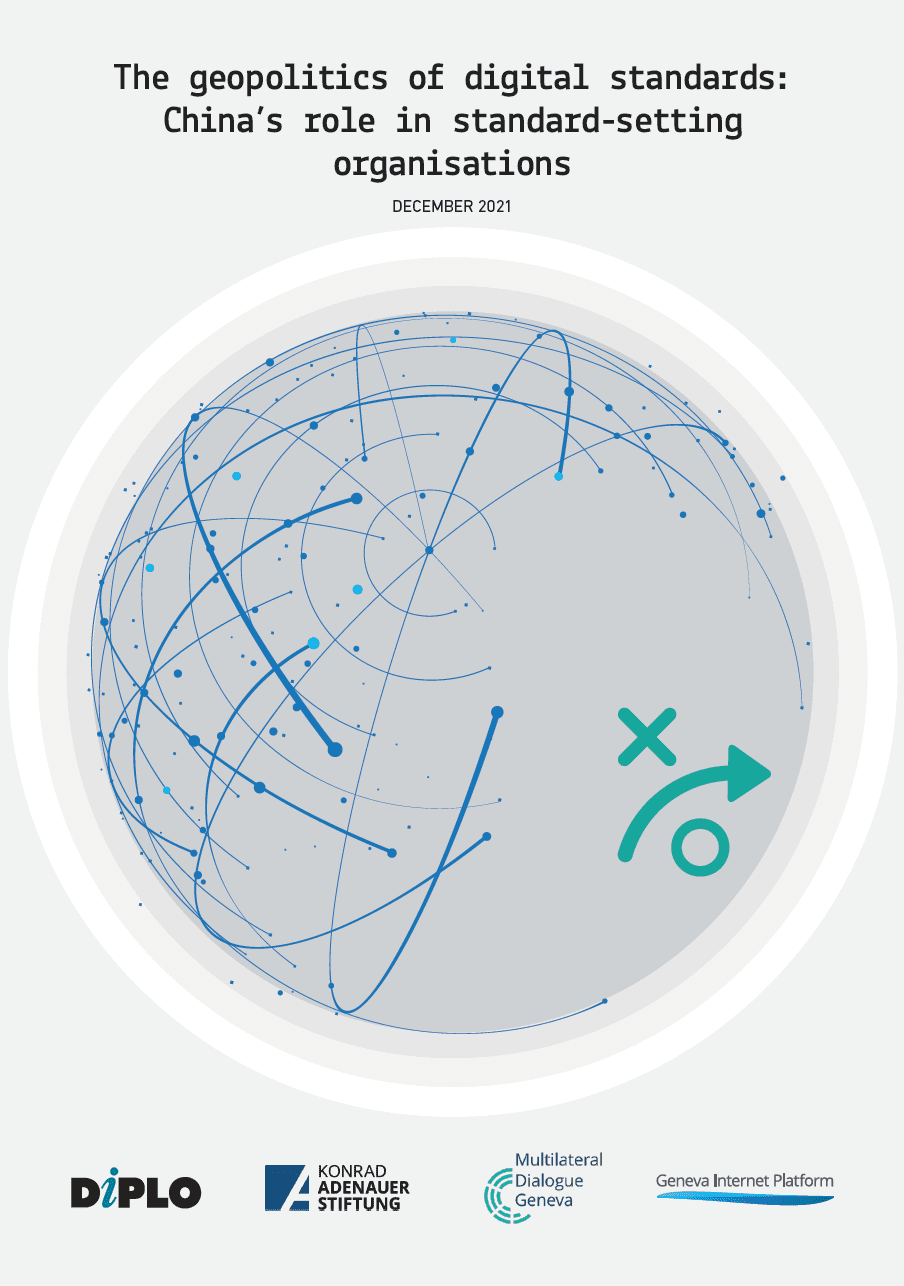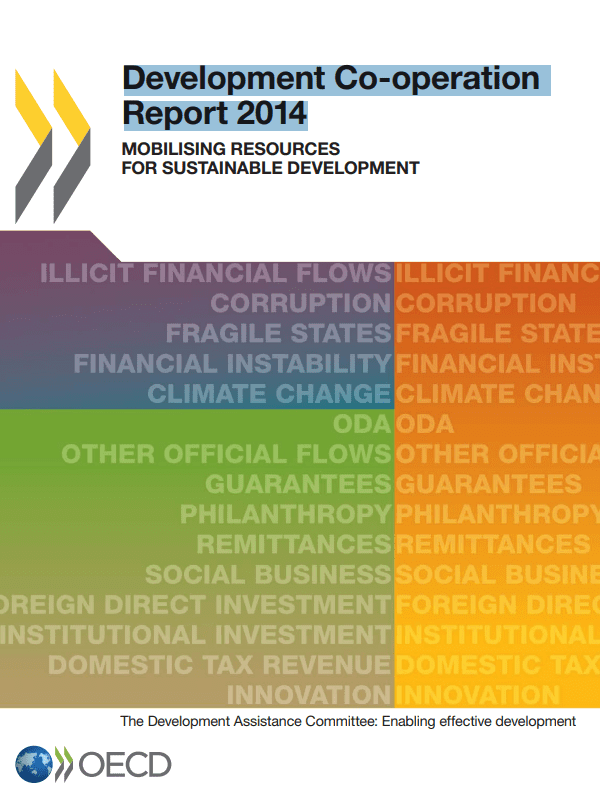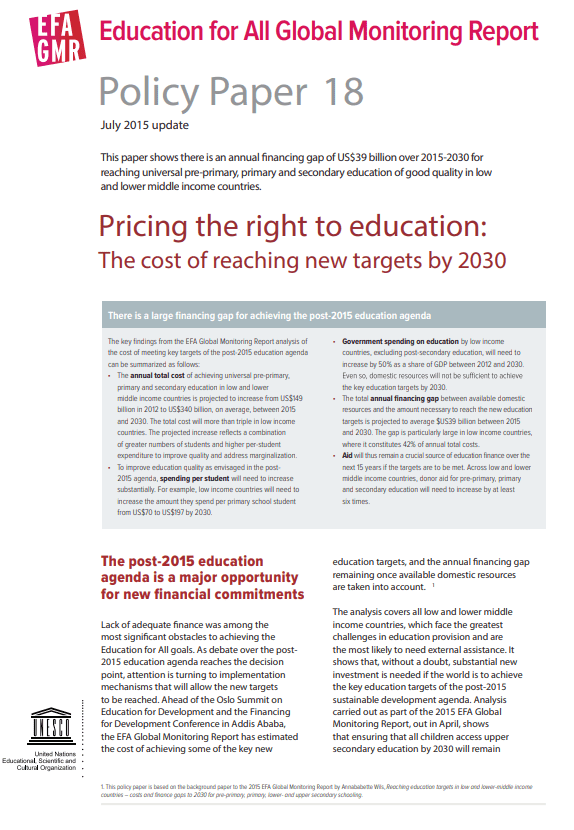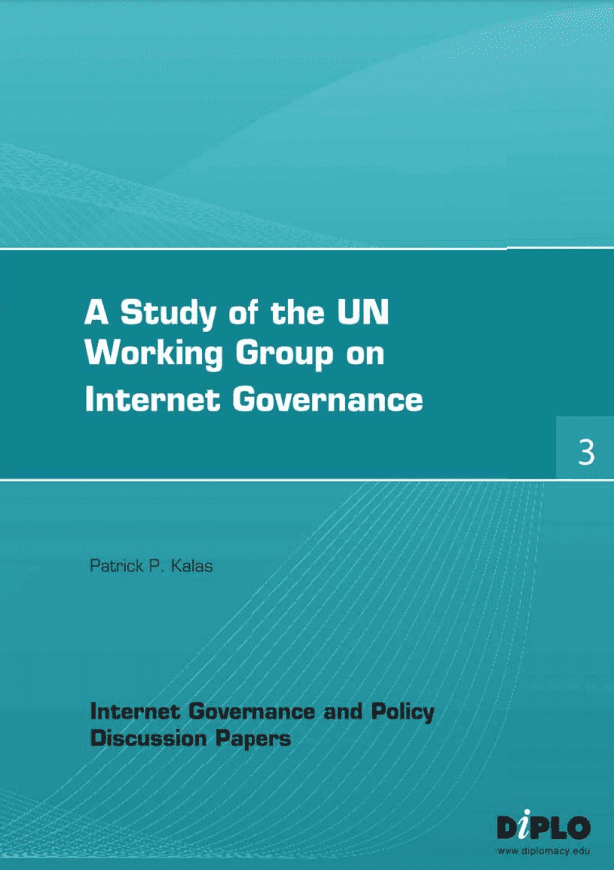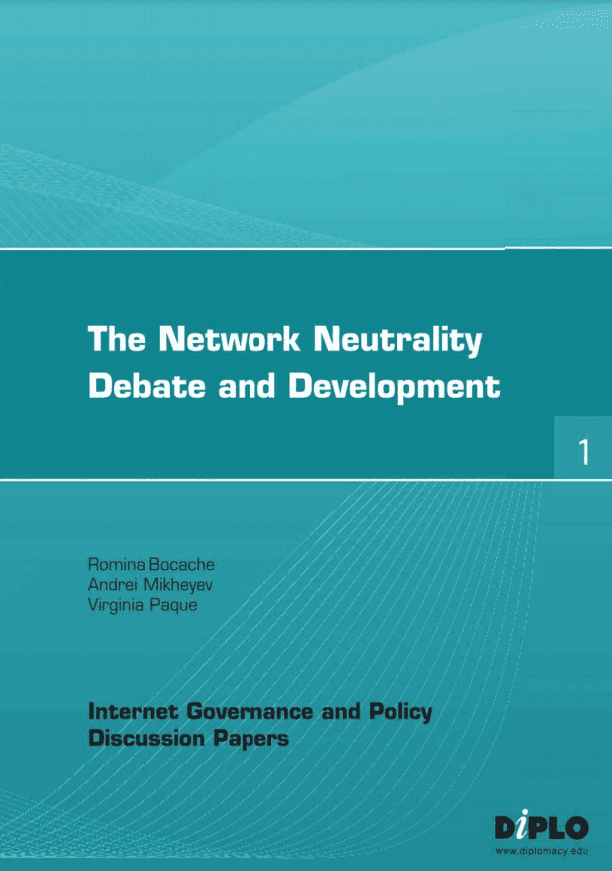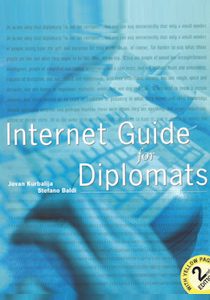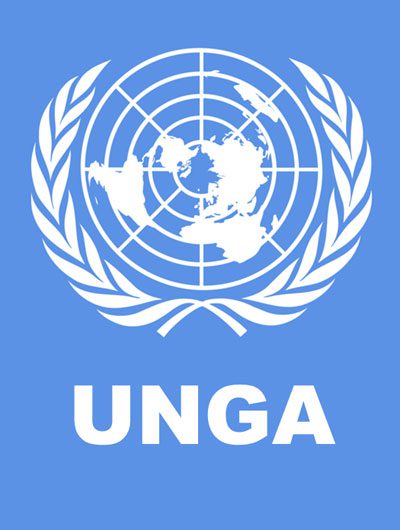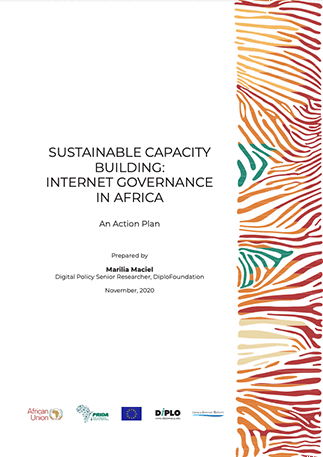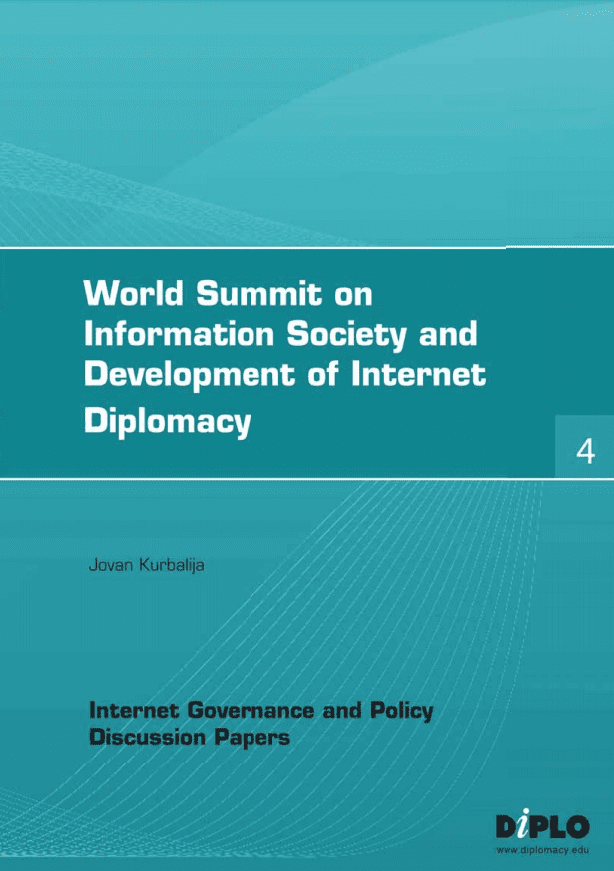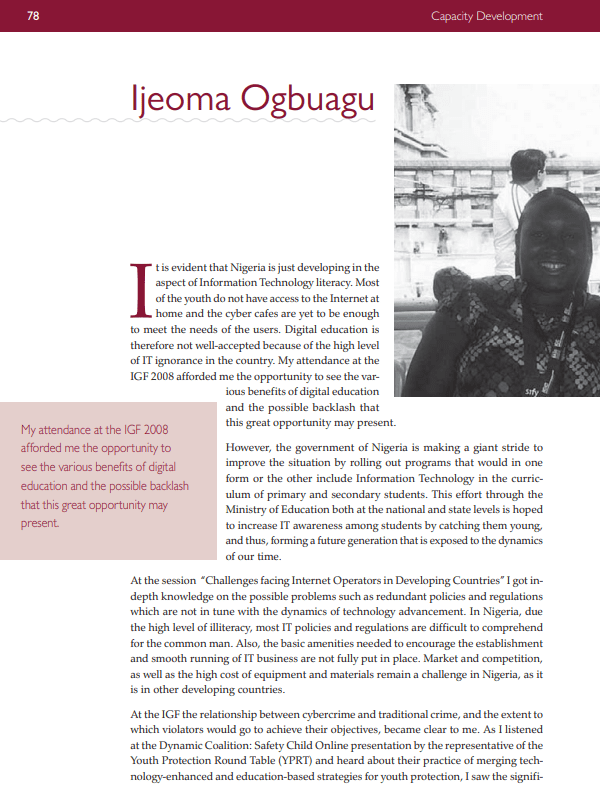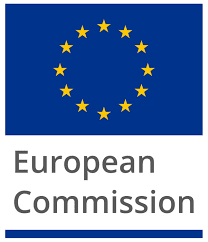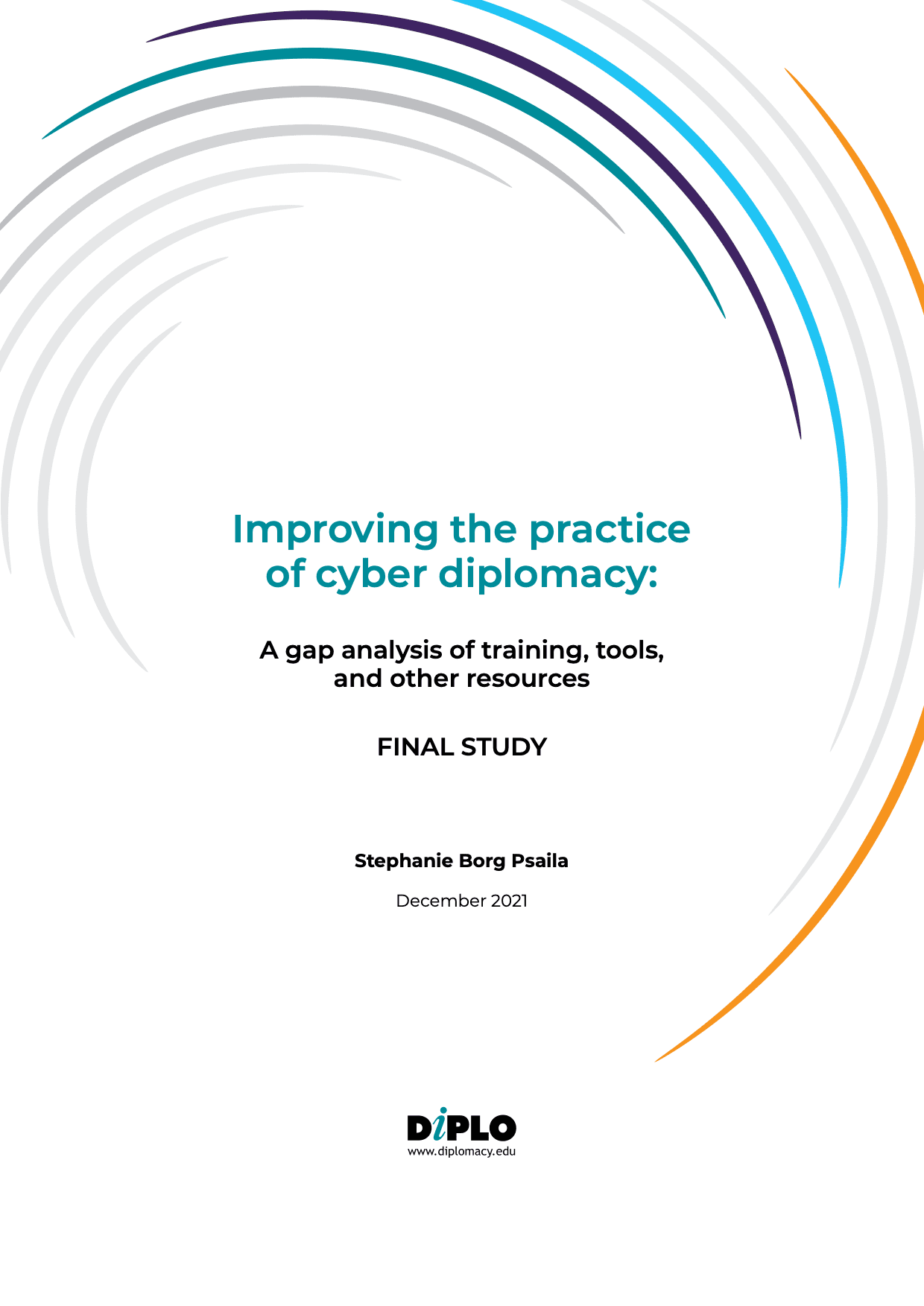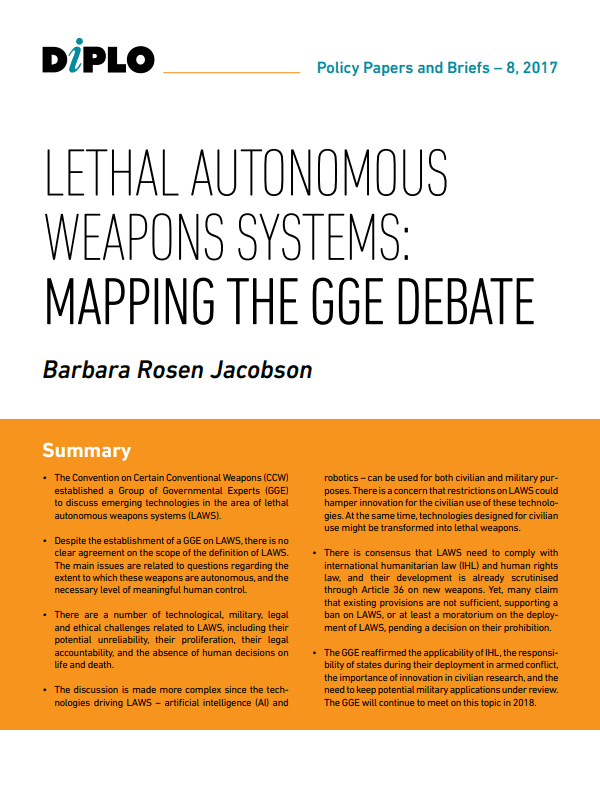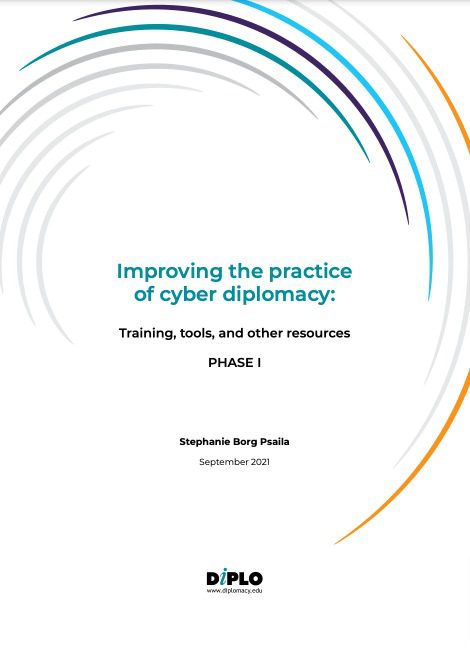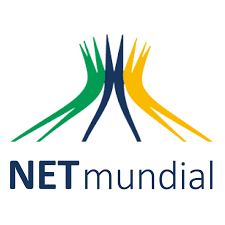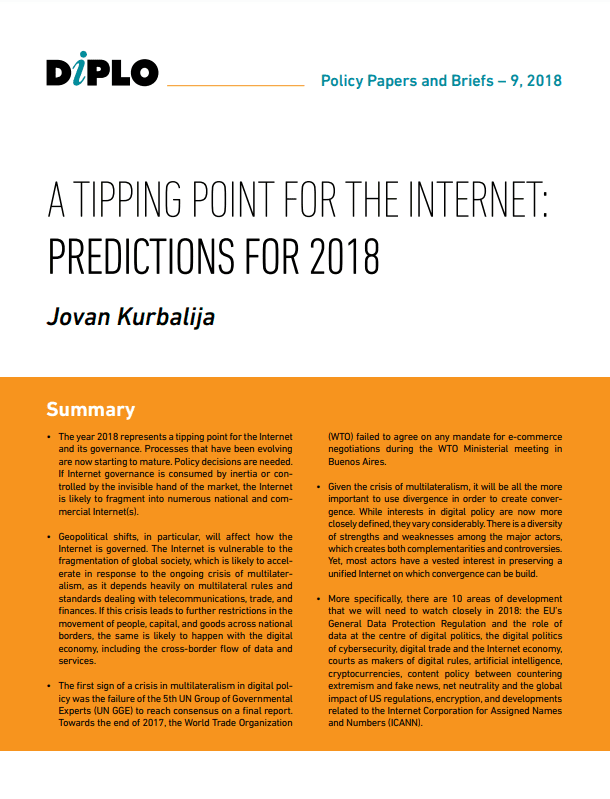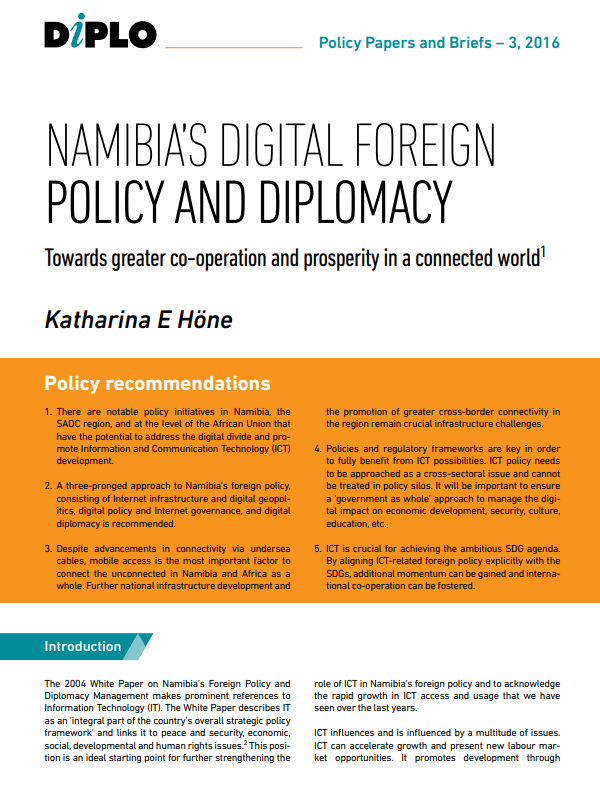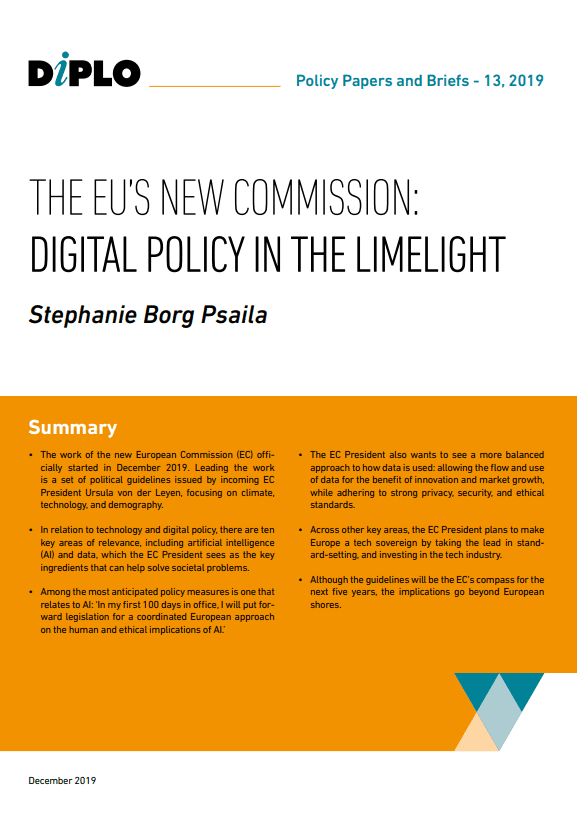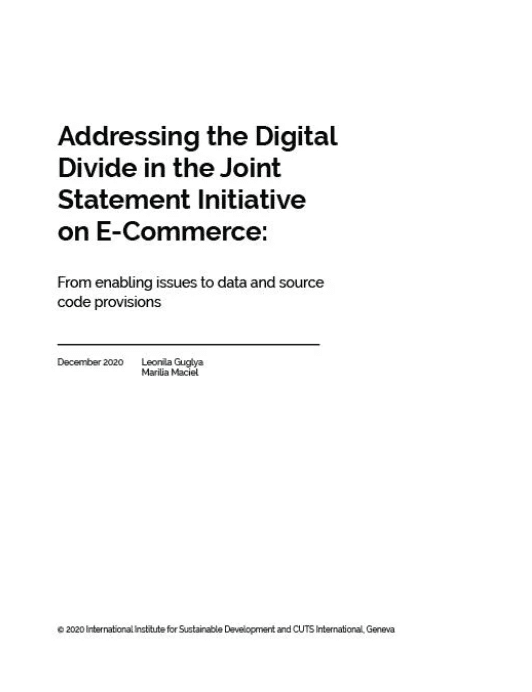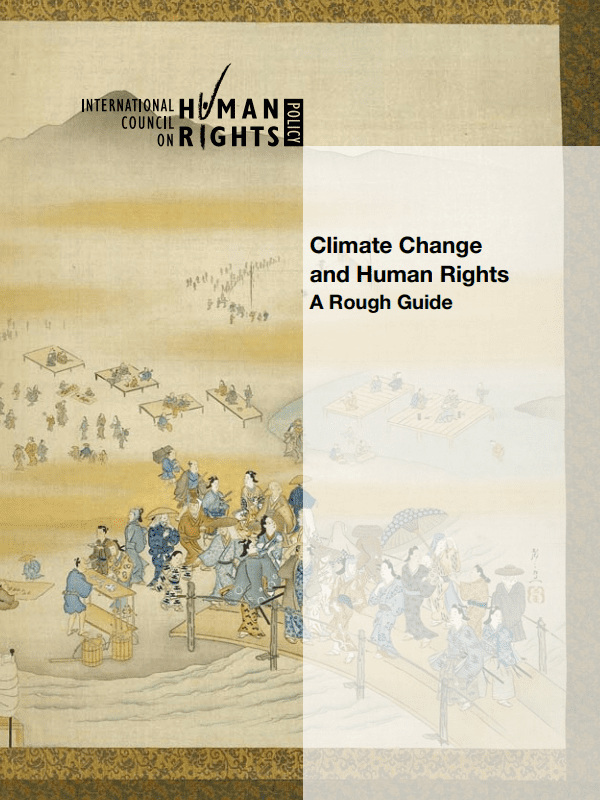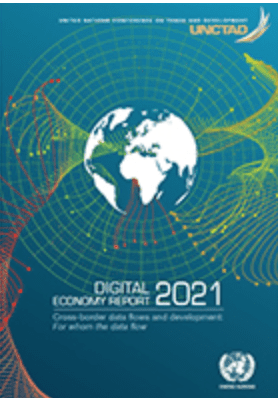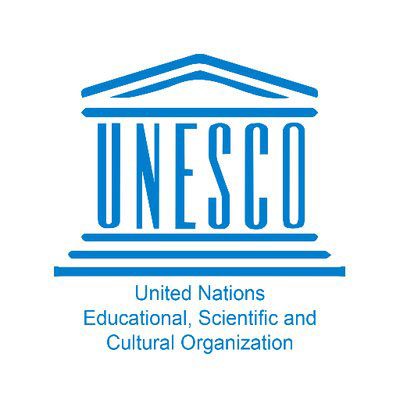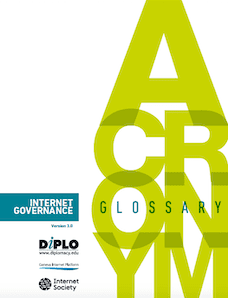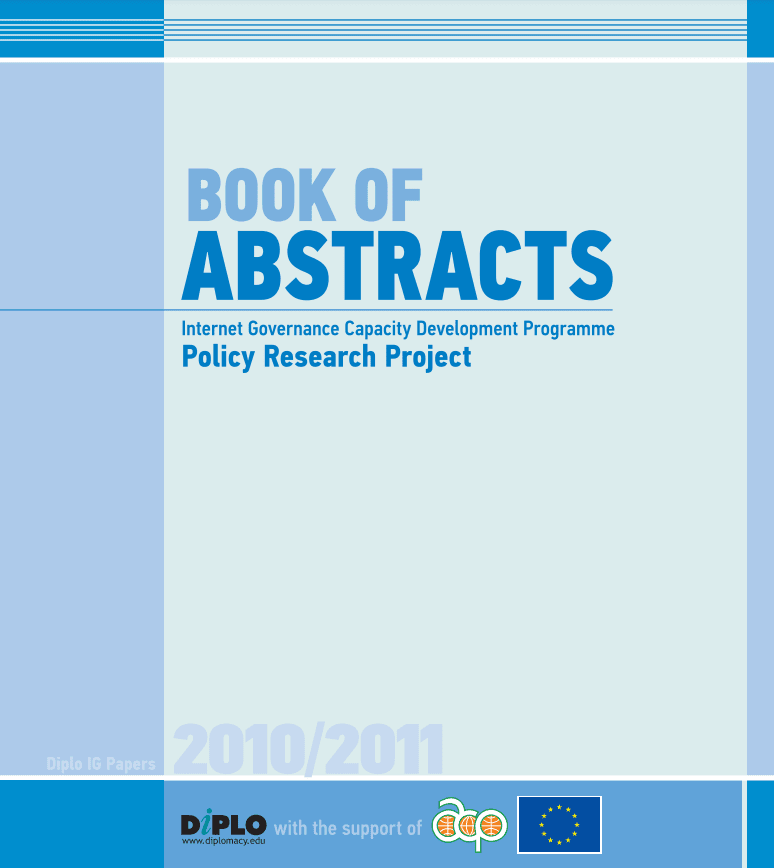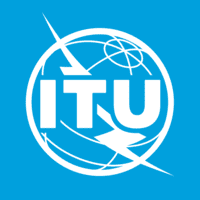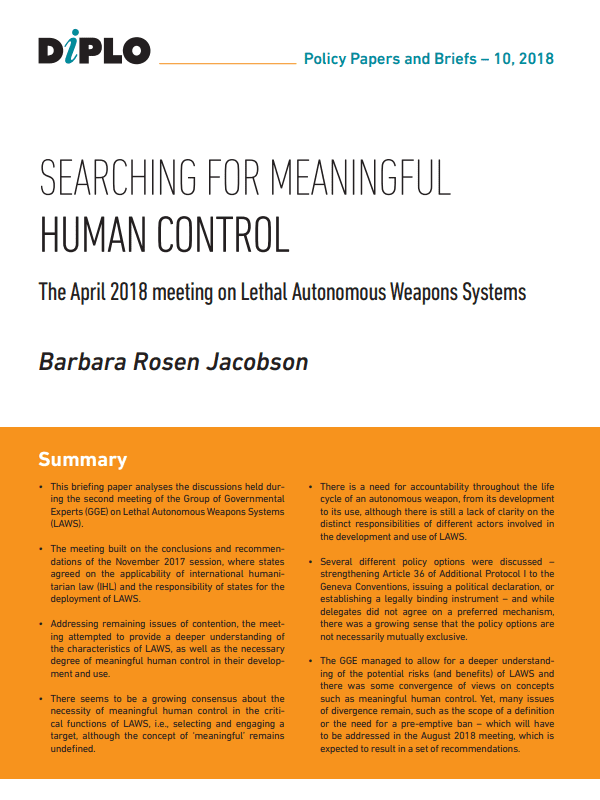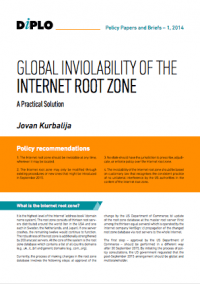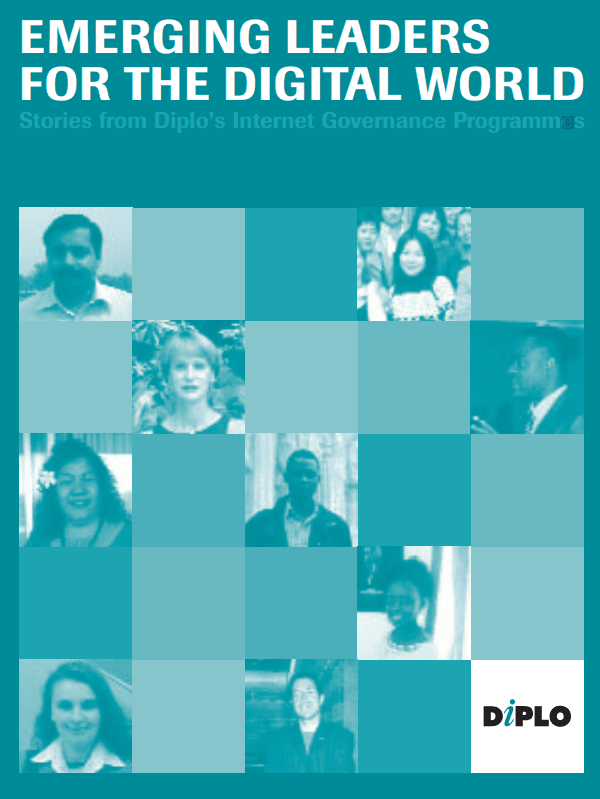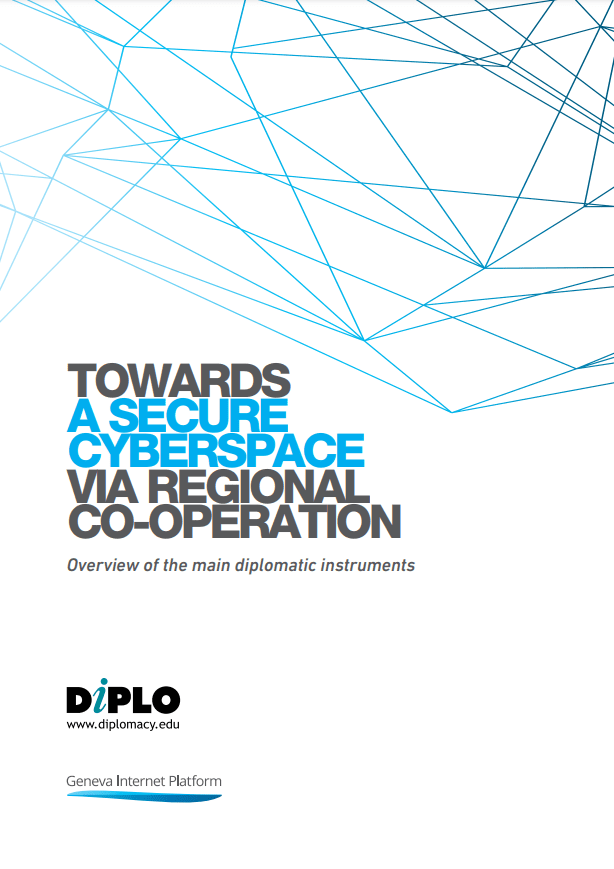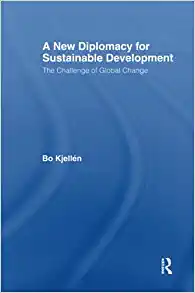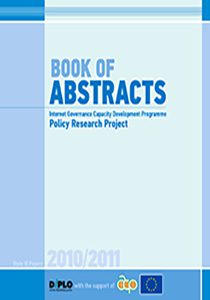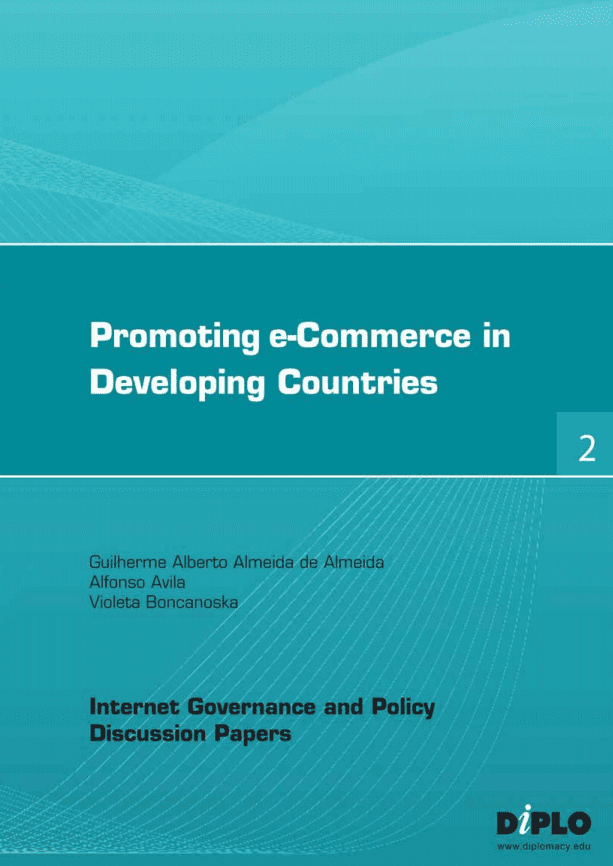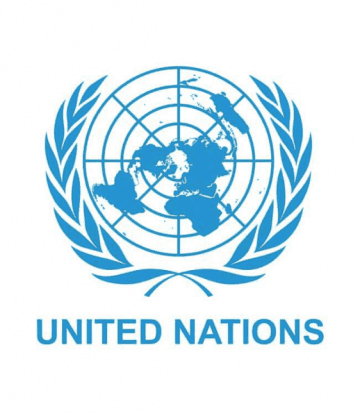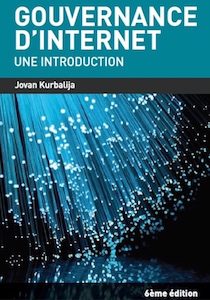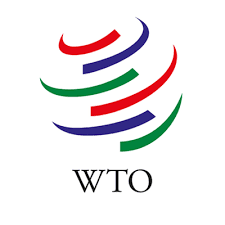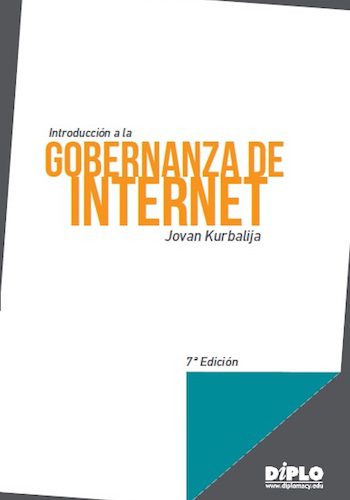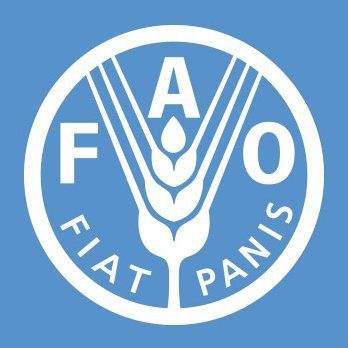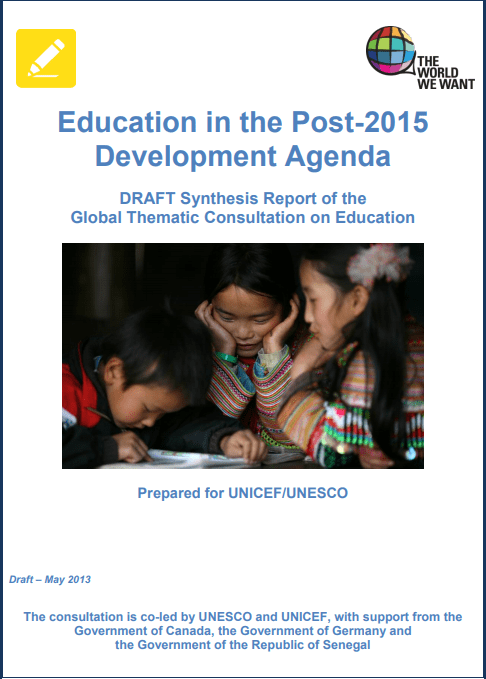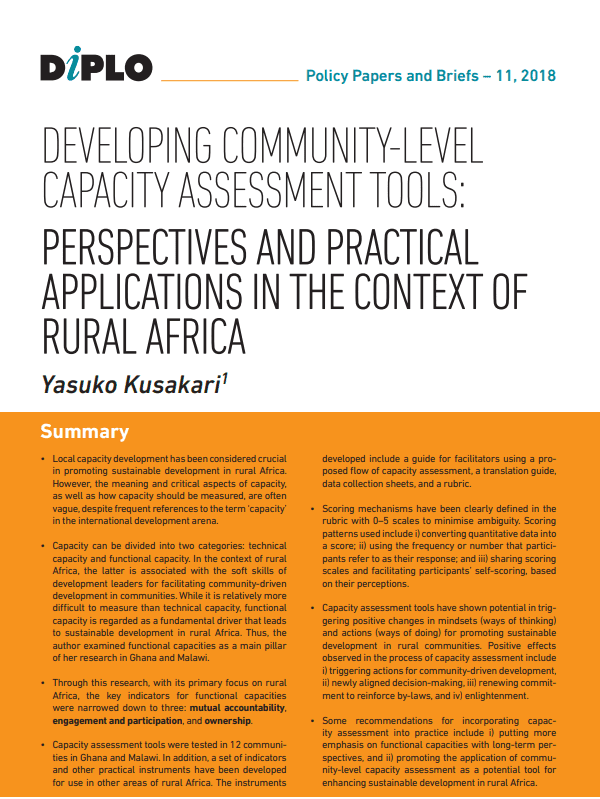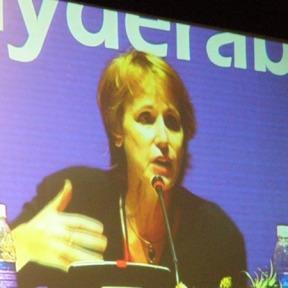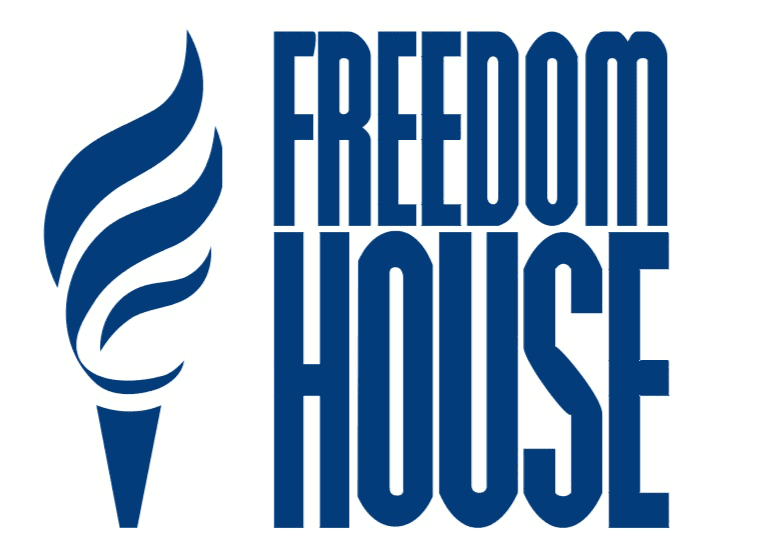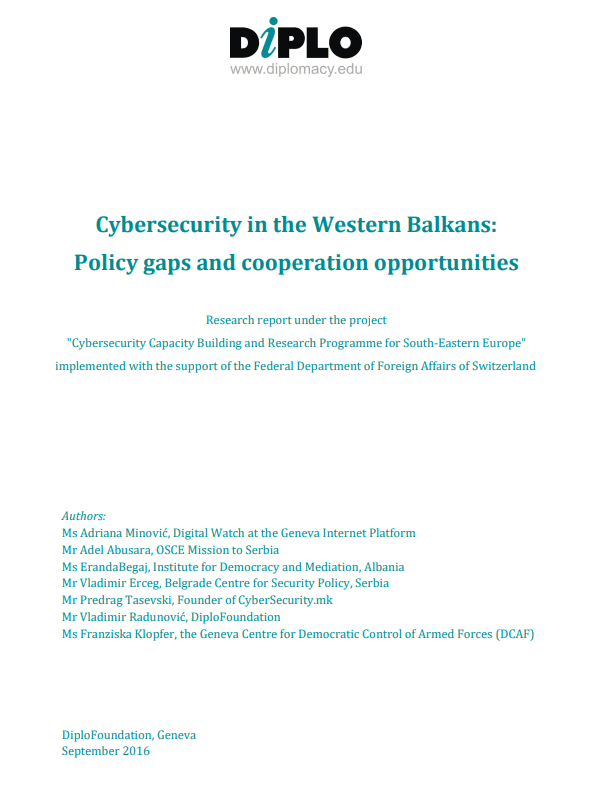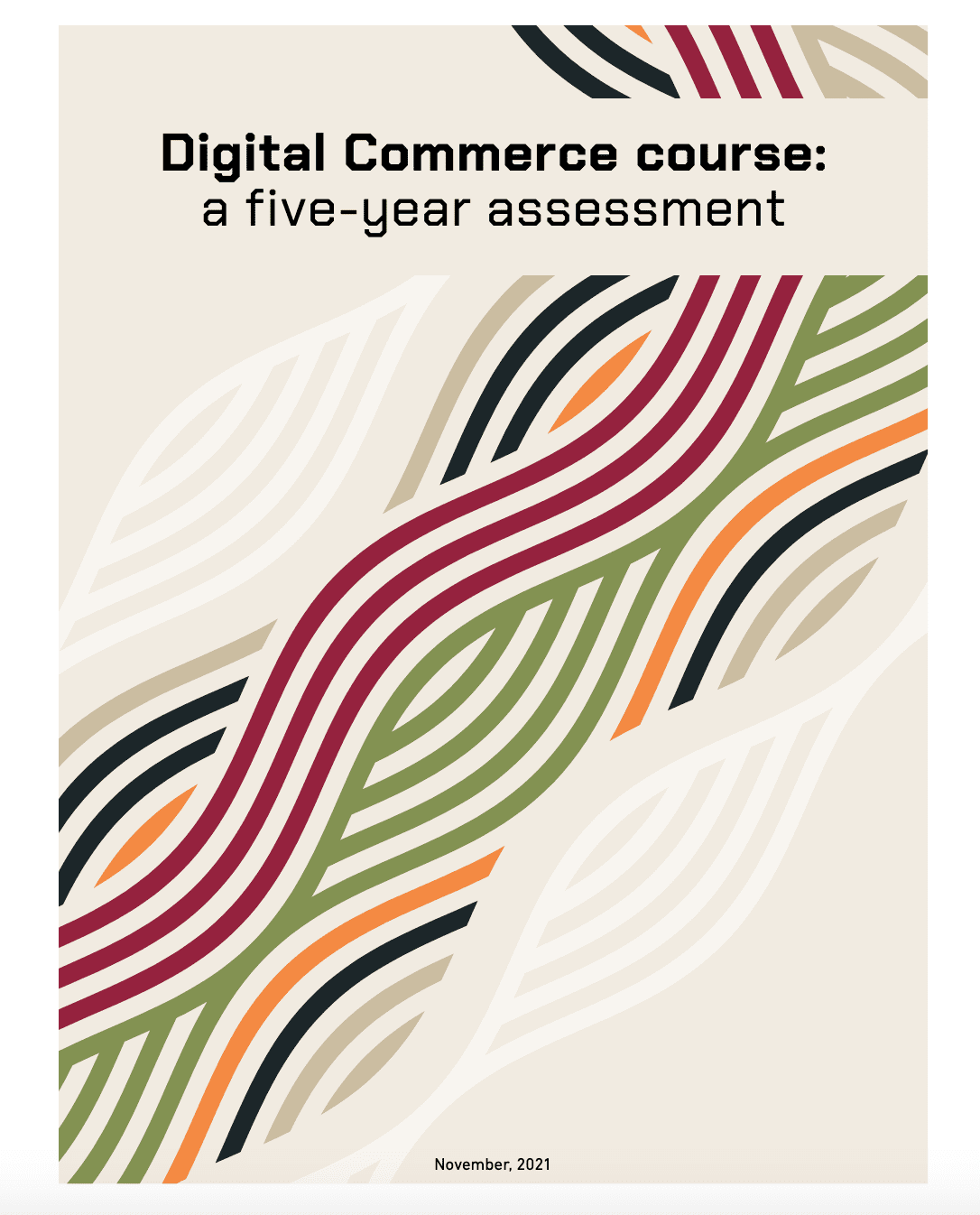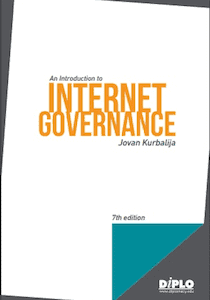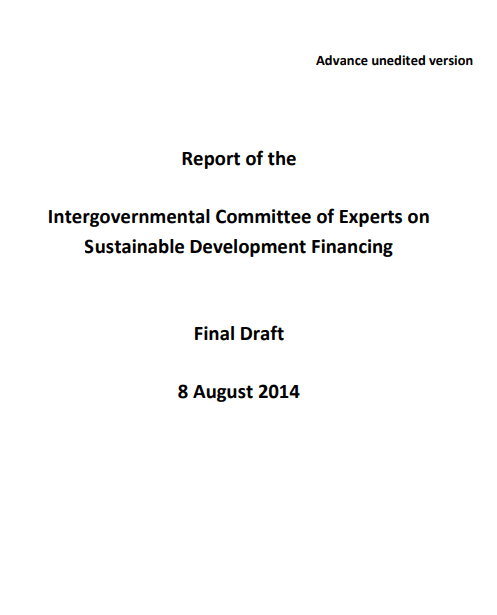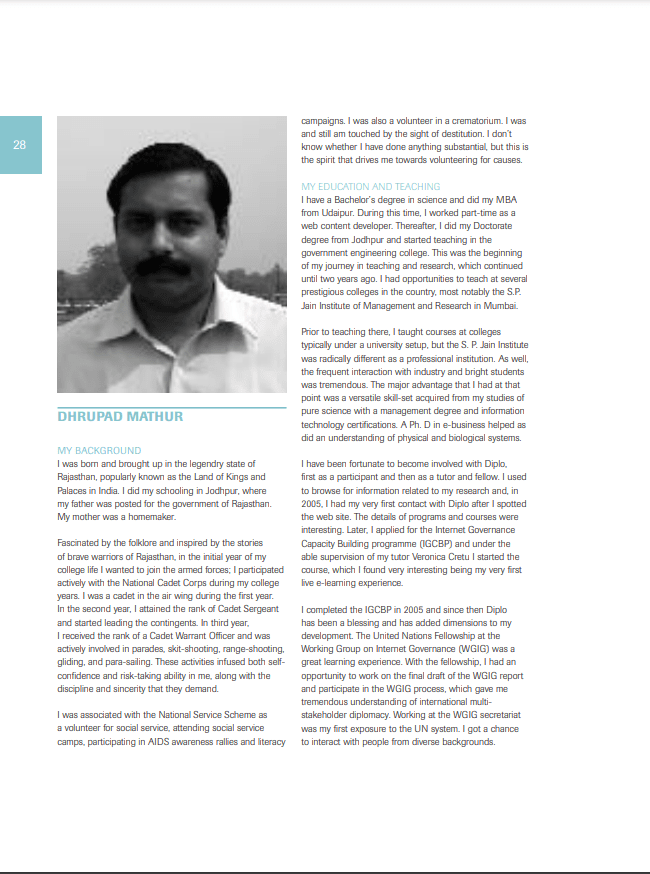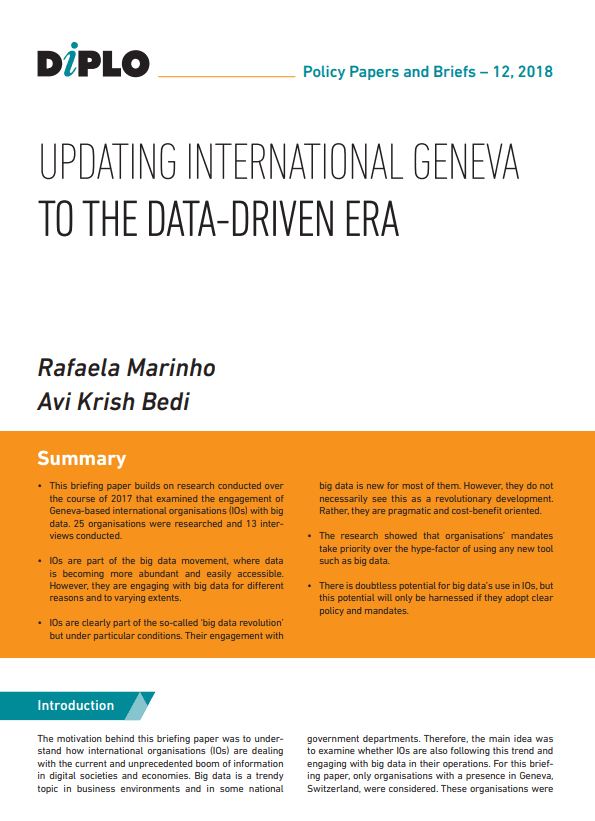Author: World Summit on the Information Society (WSIS)
Tunis Agenda for the Information Society
2005
Introduction
1. We recognize that it is now time to move from principles to action, considering the work already being done in implementing the Geneva Plan of Action and identifying those areas where progress has been made, is being made, or has not taken place.
2. We reaffirm the commitments made in Geneva and build on them in Tunis by focusing on financial mechanisms for bridging the digital divide, on Internet governance and related issues, as well as on implementation and follow-up of the Geneva and Tunis decisions.
Financial mechanisms for meeting the challenges of ICT for development
3. We thank the UN Secretary-General for his efforts in creating the Task Force on Financial Mechanisms (TFFM) and we commend the members on their report.
4. We recall that the mandate of the TFFM was to undertake a thorough review of the adequacy of existing financial mechanisms in meeting the challenges of ICT for development.
5. The TFFM report sets out the complexity of existing mechanisms, both private and public, which provide financing for ICTs in developing countries. It identifies areas where these could be improved and where ICTs could be given higher priority by developing countries and their development partners.
6. Based on the conclusion of the review of the report, we have considered the improvements and innovations of financial mechanisms, including the creation of a voluntary Digital Solidarity Fund, as mentioned in the Geneva Declaration of Principles.
7. We recognize the existence of the digital divide and the challenges that this poses for many countries, which are forced to choose between many competing objectives in their development planning and in demands for development funds whilst having limited resources.
8. We recognize the scale of the problem in bridging the digital divide, which will require adequate and sustainable investments in ICT infrastructure and services, and capacity building, and transfer of technology over many years to come.
9. We call upon the international community to promote the transfer of technology on mutually agreed terms, including ICTs, to adopt policies and programmes with a view to assisting developing countries to take advantage of technology in their pursuit of development through, inter alia, technical cooperation and the building of scientific and technological capacity in our efforts to bridge the digital and development divides.
10. We recognize that the internationally agreed development goals and objectives, including the Millennium Development Goals, are fundamental. The Monterrey Consensus on Financing for Development is the basis for the pursuit of adequate and appropriate financial mechanisms to promote ICT for development, in accordance with the Digital Solidarity Agenda of the Geneva Plan of Action.
11. We recognize and acknowledge the special and specific funding needs of the developing world, as referred to in paragraph 16 of the Geneva Declaration of Principles*, which faces numerous challenges in the ICT sector, and that there is strong need to focus on their special financing needs to achieve the internationally agreed development goals and objectives, including the Millennium Development Goals.
12. We agree that the financing of ICT for development needs to be placed in the context of the growing importance of the role of ICTs, not only as a medium of communication, but also as a development enabler, and as a tool for the achievement of the internationally agreed development goals and objectives, including the Millennium Development Goals.
13. In the past, financing of ICT infrastructure in most developing countries has been based on public investment. Lately, a significant influx of investment has taken place where private-sector participation has been encouraged, based on a sound regulatory framework, and where public policies aimed at bridging the digital divide have been implemented.
14. We are greatly encouraged by the fact that advances in communication technology, and high-speed data networks are continuously increasing the possibilities for developing countries, and countries with economies in transition, to participate in the global market for ICT-enabled services on the basis of their comparative advantage. These emerging opportunities provide a powerful commercial basis for ICT infrastructural investment in these countries. Therefore, governments should take action, in the framework of national development policies, in order to support an enabling and competitive environment for the necessary investment in ICT infrastructure and for the development of new services. At the same time, countries should pursue policies and measures that would not discourage, impede or prevent the continued participation of these countries in the global market for ICT-enabled services.
15. We take note that the challenges for expanding the scope of useful accessible information content in the developing world are numerous; in particular, the issue of financing for various forms of content and applications requires new attention, as this area has often been overlooked by the focus on ICT infrastructure.
16. We recognize that attracting investment in ICTs has depended crucially upon an enabling environment, including good governance at all levels, and a supportive, transparent and pro-competitive policy and regulatory framework, reflecting national realities.
17. We endeavour to engage in a proactive dialogue on matters related to corporate social responsibility and good corporate governance of transnational corporations and their contribution to the economic and social development of developing countries in our efforts to bridge the digital divide.
18. We underline that market forces alone cannot guarantee the full participation of developing countries in the global market for ICT-enabled services. Therefore, we encourage the strengthening of international cooperation and solidarity aimed at enabling all countries, especially those referred to in paragraph 16 of the Geneva Declaration of Principles, to develop ICT infrastructure and ICT-enabled services that are viable and competitive at national and international levels.
19. We recognize that, in addition to the public sector, financing of ICT infrastructure by the private sector has come to play an important role in many countries and that domestic financing is being augmented by North-South flows and South-South cooperation.
20. We recognize that, as a result of the growing impact of sustainable private-sector investment in infrastructure, multilateral and bilateral public donors are redirecting public resources to other development objectives, including Poverty Reduction Strategy Papers and related programmes, policy reforms and mainstreaming of ICTs and capacity development. We encourage all governments to give appropriate priority to ICTs, including traditional ICTs such as broadcast radio and television, in their national development strategies. We also encourage multilateral institutions as well as bilateral public donors to consider also providing more financial support for regional and large-scale national ICT infrastructure projects and related capacity development. They should consider aligning their aid and partnership strategies with the priorities set by developing countries and countries with economies in transition in their national development strategies including their poverty reduction strategies.
21. We recognize that public finance plays a crucial role in providing ICT access and services to rural areas and disadvantaged populations including those in Small Island Developing States and Landlocked Developing Countries.
22. We note that ICT-related capacity-building needs represent a high priority in all developing countries and the current financing levels have not been adequate to meet the needs, although there are many different funding mechanisms supporting ICTs for development.
23. We recognize that there are a number of areas in need of greater financial resources and where current approaches to ICT for development financing have devoted insufficient attention to date. These include:
a. ICT capacity-building programmes, materials, tools, educational funding and specialized training initiatives, especially for regulators and other public-sector employees and organizations.
b. Communications access and connectivity for ICT services and applications in remote rural areas, Small Island Developing States, Landlocked Developing Countries and other locations presenting unique technological and market challenges.
c. Regional backbone infrastructure, regional networks, Network Access Points and related regional projects, to link networks across borders and in economically disadvantaged regions which may require coordinated policies including legal, regulatory and financial frameworks, and seed financing, and would benefit from sharing experiences and best practices.
d. Broadband capacity to facilitate the delivery of a broader range of services and applications, promote investment and provide Internet access at affordable prices to both existing and new users.
e. Coordinated assistance, as appropriate, for countries referred to in paragraph 16 of the Geneva Declaration of Principles, particularly Least Developed Countries and Small Island Developing States, in order to improve effectiveness and to lower transaction costs associated with the delivery of international donor support.
f. ICT applications and content aimed at the integration of ICTs into the implementation of poverty eradication strategies and in sector programmes, particularly in health, education, agriculture and the environment.
In addition, there is a need to consider the following other issues, which are relevant to ICT for development and which have not received adequate attention:
g. Sustainability of Information Society related projects, for example the maintenance of ICT infrastructure.
h. Special needs of Small, Medium and Micro Enterprises (SMMEs), such as funding requirements.
i. Local development and manufacturing of ICT applications and technologies by developing countries.
j. Activities on ICT-related institutional reform and enhanced capacity on legal and regulatory framework.
k. Improving organizational structures and business-process change aimed at optimizing the impact and effectiveness of ICT projects and other projects with significant ICT components;
l. Local government and initiatives based in local communities that deliver ICT services to communities in areas such as education, health and livelihood support.
24. Recognizing that the central responsibility for coordination of public financing programmes and public ICT development initiatives rests with governments, we recommend that further cross-sectoral and cross-institutional coordination should be undertaken, both on the part of donors and recipients within the national framework.
25. Multilateral development banks and institutions should consider adapting their existing mechanisms, and where appropriate designing new ones, to provide for national and regional demands on ICT development.
26. We acknowledge the following prerequisites for equitable and universal accessibility to, and better utilization of, financial mechanisms:
a. Creating policy and regulatory incentives aimed at universal access and the attraction of private-sector investment.
b. Identification and acknowledgement of the key role of ICTs in national development strategies, and their elaboration, when appropriate, in conjunction with e-strategies.
c. Developing institutional and implementation capacity to support the use of national universal service/access funds, and further study of these mechanisms and those aiming to mobilize domestic resources.
d. Encouraging the development of locally relevant information, applications and services that will benefit developing countries and countries with economies in transition.
e. Supporting the “scaling-up” of successful ICT-based pilot programmes.
f. Supporting the use of ICTs in government as a priority and crucial target area for ICT-based development interventions.
g. Building human resource and institutional capacity (knowledge) at every level for achieving Information Society objectives, especially in the public sector.
h. Encouraging business-sector entities to help jump-start wider demand for ICT services by supporting creative industries, local producers of cultural content and applications as well as small businesses.
i. Strengthening capacities to enhance the potential of securitized funds and utilizing them effectively.
27. We recommend improvements and innovations in existing financing mechanisms, including:
a. Improving financial mechanisms to make financial resources become adequate, more predictable, preferably untied, and sustainable.
b. Enhancing regional cooperation and creating multi-stakeholder partnerships, especially by creating incentives for building regional backbone infrastructure.
c. Providing affordable access to ICTs, by the following measures:
- reducing international Internet costs charged by backbone providers, supporting, inter alia, the creation and development of regional ICT backbones and Internet Exchange Points to reduce interconnection cost and broaden network access;
- encouraging ITU to continue the study of the question of International Internet Connectivity (IIC) as an urgent matter to develop appropriate Recommendations.
d. Coordinating programmes among governments and major financial players to mitigate investment risks and transaction costs for operators entering less attractive rural and low-income market segments.
e. Helping to accelerate the development of domestic financial instruments, including by supporting local microfinance instruments, ICT business incubators, public credit instruments, reverse auction mechanisms, networking initiatives based on local communities, digital solidarity and other innovations.
f. Improving the ability to access financing facilities with a view to accelerating the pace of financing of ICT infrastructure and services, including the promotion of North-South flows as well as North-South and South-South cooperation.
g. Multilateral, regional and bilateral development organizations should consider the utility of creating a virtual forum for the sharing of information by all stakeholders on potential projects, on sources of financing and on institutional financial mechanisms.
h. Enabling developing countries to be increasingly able to generate funds for ICTs and to develop financial instruments, including trust funds and seed capital adapted to their economies.
i. Urging all countries to make concrete efforts to fulfil their commitments under the Monterrey Consensus.
j. Multilateral, regional and bilateral development organizations should consider cooperating to enhance their capacity to provide rapid response with a view to supporting developing countries that request assistance with respect to ICT policies;
k. Encouraging increased voluntary contributions.
l. Making, as appropriate, effective use of debt relief mechanisms as outlined in the Geneva Plan of Action, including inter alia debt cancellation and debt swapping, that may be used for financing ICT for development projects, including those within the framework of Poverty Reduction Strategies.
28. We welcome the Digital Solidarity Fund (DSF) established in Geneva as an innovative financial mechanism of a voluntary nature open to interested stakeholders with the objective of transforming the digital divide into digital opportunities for the developing world by focusing mainly on specific and urgent needs at the local level and seeking new voluntary sources of “solidarity” finance. The DSF will complement existing mechanisms for funding the Information Society, which should continue to be fully utilized to fund the growth of new ICT infrastructure and services.
Internet governance
29. We reaffirm the principles enunciated in the Geneva phase of the WSIS, in December 2003, that the Internet has evolved into a global facility available to the public and its governance should constitute a core issue of the Information Society agenda. The international management of the Internet should be multilateral, transparent and democratic, with the full involvement of governments, the private sector, civil society and international organizations. It should ensure an equitable distribution of resources, facilitate access for all and ensure a stable and secure functioning of the Internet, taking into account multilingualism.
30. We acknowledge that the Internet, a central element of the infrastructure of the Information Society, has evolved from a research and academic facility into a global facility available to the public.
31. We recognize that Internet governance, carried out according to the Geneva principles, is an essential element for a people-centred, inclusive, development-oriented and non-discriminatory Information Society. Furthermore, we commit ourselves to the stability and security of the Internet as a global facility and to ensuring the requisite legitimacy of its governance, based on the full participation of all stakeholders, from both developed and developing countries, within their respective roles and responsibilities.
32. We thank the UN Secretary-General for establishing the Working Group on Internet Governance (WGIG). We commend the chairman, members and secretariat for their work and for their report.
33. We take note of the WGIG’s report that has endeavoured to develop a working definition of Internet governance. It has helped identify a number of public policy issues that are relevant to Internet governance. The report has also enhanced our understanding of the respective roles and responsibilities of governments, intergovernmental and international organizations and other forums as well as the private sector and civil society from both developing and developed countries.
34. A working definition of Internet governance is the development and application by governments, the private sector and civil society, in their respective roles, of shared principles, norms, rules, decision-making procedures, and programmes that shape the evolution and use of the Internet.
35. We reaffirm that the management of the Internet encompasses both technical and public policy issues and should involve all stakeholders and relevant intergovernmental and international organizations. In this respect it is recognized that:
a. Policy authority for Internet-related public policy issues is the sovereign right of States. They have rights and responsibilities for international Internet-related public policy issues.
b. The private sector has had, and should continue to have, an important role in the development of the Internet, both in the technical and economic fields.
c. Civil society has also played an important role on Internet matters, especially at community level, and should continue to play such a role.
d. Intergovernmental organizations have had, and should continue to have, a facilitating role in the coordination of Internet-related public policy issues.
e. International organizations have also had and should continue to have an important role in the development of Internet-related technical standards and relevant policies.
36. We recognize the valuable contribution by the academic and technical communities within those stakeholder groups mentioned in paragraph 35 to the evolution, functioning and development of the Internet.
37. We seek to improve the coordination of the activities of international and intergovernmental organizations and other institutions concerned with Internet governance and the exchange of information among themselves. A multi-stakeholder approach should be adopted, as far as possible, at all levels.
38. We call for the reinforcement of specialized regional Internet resource management institutions to guarantee the national interest and rights of countries in that particular region to manage their own Internet resources, while maintaining global coordination in this area.
39. We seek to build confidence and security in the use of ICTs by strengthening the trust framework. We reaffirm the necessity to further promote, develop and implement in cooperation with all stakeholders a global culture of cybersecurity, as outlined in UNGA Resolution 57/239 and other relevant regional frameworks. This culture requires national action and increased international cooperation to strengthen security while enhancing the protection of personal information, privacy and data. Continued development of the culture of cybersecurity should enhance access and trade and must take into account the level of social and economic development of each country and respect the development-oriented aspects of the Information Society.
40. We underline the importance of the prosecution of cybercrime, including cybercrime committed in one jurisdiction, but having effects in another. We further underline the necessity of effective and efficient tools and actions, at national and international levels, to promote international cooperation among, inter alia, law-enforcement agencies on cybercrime. We call upon governments in cooperation with other stakeholders to develop necessary legislation for the investigation and prosecution of cybercrime, noting existing frameworks, for example, UNGA Resolutions 55/63 and 56/121 on “Combating the criminal misuse of information technologies” and regional initiatives including, but not limited to, the Council of Europe’s Convention on Cybercrime.
41. We resolve to deal effectively with the significant and growing problem posed by spam. We take note of current multilateral, multi-stakeholder frameworks for regional and international cooperation on spam, for example, the APEC Anti-Spam Strategy, the London Action Plan, the Seoul-Melbourne Anti–Spam Memorandum of Understanding and the relevant activities of OECD and ITU. We call upon all stakeholders to adopt a multi-pronged approach to counter spam that includes, inter alia, consumer and business education; appropriate legislation, law-enforcement authorities and tools; the continued development of technical and self-regulatory measures; best practices; and international cooperation.
42. We reaffirm our commitment to the freedom to seek, receive, impart and use information, in particular, for the creation, accumulation and dissemination of knowledge. We affirm that measures undertaken to ensure Internet stability and security, to fight cybercrime and to counter spam, must protect and respect the provisions for privacy and freedom of expression as contained in the relevant parts of the Universal Declaration of Human Rights and the Geneva Declaration of Principles.
43. We reiterate our commitments to the positive uses of the Internet and other ICTs and to take appropriate actions and preventive measures, as determined by law, against abusive uses of ICTs as mentioned under the Ethical Dimensions of the Information Society of the Geneva Declaration of Principles and Plan of Action.
44. We also underline the importance of countering terrorism in all its forms and manifestations on the Internet, while respecting human rights and in compliance with other obligations under international law, as outlined in UNGA A/60/L.1 with reference to Article 85 of the 2005 World Summit Outcome.
45. We underline the importance of the security, continuity and stability of the Internet, and the need to protect the Internet and other ICT networks from threats and vulnerabilities. We affirm the need for a common understanding of the issues of Internet security, and for further cooperation to facilitate outreach, the collection and dissemination of security-related information and exchange of good practice among all stakeholders on measures to combat security threats, at national and international levels.
46. We call upon all stakeholders to ensure respect for privacy and the protection of personal information and data, whether via adoption of legislation, the implementation of collaborative frameworks, best practices and self-regulatory and technological measures by business and users. We encourage all stakeholders, in particular governments, to reaffirm the right of individuals to access information according to the Geneva Declaration of Principles and other mutually agreed relevant international instruments, and to coordinate internationally as appropriate.
47. We recognize the increasing volume and value of all e-business, both within and across national boundaries. We call for the development of national consumer-protection laws and practices, and enforcement mechanisms where necessary, to protect the right of consumers who purchase goods and services online, and for enhanced international cooperation to facilitate a further expansion, in a non-discriminatory way, under applicable national laws, of e-business as well as consumer confidence in it.
48. We note with satisfaction the increasing use of ICT by governments to serve citizens and encourage countries that have not yet done so to develop national programmes and strategies for e-government.
49. We reaffirm our commitment to turning the digital divide into digital opportunity, and we commit to ensuring harmonious and equitable development for all. We commit to foster and provide guidance on development areas in the broader Internet governance arrangements, and to include, amongst other issues, international interconnection costs, capacity building and technology/know-how transfer. We encourage the realization of multilingualism in the Internet development environment, and we support the development of software that renders itself easily to localization, and enables users to choose appropriate solutions from different software models including open-source, free and proprietary software.
50. We acknowledge that there are concerns, particularly amongst developing countries, that the charges for international Internet connectivity should be better balanced to enhance access. We therefore call for the development of strategies for increasing affordable global connectivity, thereby facilitating improved and equitable access for all, by:
a. Promoting Internet transit and interconnection costs that are commercially negotiated in a competitive environment and that should be oriented towards objective, transparent and non-discriminatory parameters, taking into account ongoing work on this subject.
b. Setting up regional high-speed Internet backbone networks and the creation of national, sub-regional and regional Internet Exchange Points (IXPs).
c. Recommending donor programmes and developmental financing mechanisms to consider the need to provide funding for initiatives that advance connectivity, IXPs and local content for developing countries.
d. Encouraging ITU to continue the study of the question of International Internet Connectivity (IIC) as a matter of urgency, and to periodically provide output for consideration and possible implementation. We also encourage other relevant institutions to address this issue.
e. Promoting the development and growth of low-cost terminal equipment, such as individual and collective user devices, especially for use in developing countries.
f. Encouraging Internet Service Providers (ISPs) and other parties in the commercial negotiations to adopt practices towards attainment of fair and balanced interconnectivity costs.
g. Encouraging relevant parties to commercially negotiate reduced interconnection costs for Least Developed Countries (LDCs), taking into account the special constraints of LDCs.
51. We encourage governments and other stakeholders, through partnerships where appropriate, to promote ICT education and training in developing countries, by establishing national strategies for ICT integration in education and workforce development and dedicating appropriate resources. Furthermore, international cooperation would be extended, on a voluntary basis, for capacity building in areas relevant to Internet governance. This may include, in particular, building centres of expertise and other institutions to facilitate know-how transfer and exchange of best practices, in order to enhance the participation of developing countries and all stakeholders in Internet governance mechanisms.
52. In order to ensure effective participation in global Internet governance, we urge international organizations, including intergovernmental organizations, where relevant, to ensure that all stakeholders, particularly from developing countries, have the opportunity to participate in policy decision-making relating to Internet governance, and to promote and facilitate such participation.
53. We commit to working earnestly towards multilingualization of the Internet, as part of a multilateral, transparent and democratic process, involving governments and all stakeholders, in their respective roles. In this context, we also support local content development, translation and adaptation, digital archives, and diverse forms of digital and traditional media, and recognize that these activities can also strengthen local and indigenous communities. We would therefore underline the need to:
a. Advance the process for the introduction of multilingualism in a number of areas including domain names, e-mail addresses and keyword look-up.
b. Implement programmes that allow for the presence of multilingual domain names and content on the Internet and the use of various software models in order to fight against the linguistic digital divide and to ensure the participation of all in the emerging new society.
c. Strengthen cooperation between relevant bodies for the further development of technical standards and to foster their global deployment.
54. We recognize that an enabling environment, at national and international levels, supportive of foreign direct investment, transfer of technology, and international cooperation, particularly in the areas of finance, debt and trade, is essential for the development of the Information Society, including for the development and diffusion of the Internet and its optimal use. In particular, the roles of the private sector and civil society as the drivers of innovation and private investment in the development of the Internet are critical. Value is added at the edges of the network in both developed and developing countries when the international and domestic policy environment encourages investment and innovation.
55. We recognize that the existing arrangements for Internet governance have worked effectively to make the Internet the highly robust, dynamic and geographically diverse medium that it is today, with the private sector taking the lead in day-to-day operations, and with innovation and value creation at the edges.
56. The Internet remains a highly dynamic medium and therefore any framework and mechanisms designed to deal with Internet governance should be inclusive and responsive to the exponential growth and fast evolution of the Internet as a common platform for the development of multiple applications.
57. The security and stability of the Internet must be maintained.
58. We recognize that Internet governance includes more than Internet naming and addressing. It also includes other significant public policy issues such as, inter alia, critical Internet resources, the security and safety of the Internet, and developmental aspects and issues pertaining to the use of the Internet.
59. We recognize that Internet governance includes social, economic and technical issues including affordability, reliability and quality of service.
60. We further recognize that there are many cross-cutting international public policy issues that require attention and are not adequately addressed by the current mechanisms.
61. We are convinced that there is a need to initiate, and reinforce, as appropriate, a transparent, democratic, and multilateral process, with the participation of governments, private sector, civil society and international organizations, in their respective roles. This process could envisage creation of a suitable framework or mechanisms, where justified, thus spurring the ongoing and active evolution of the current arrangements in order to synergize the efforts in this regard.
62. We emphasize that any Internet governance approach should be inclusive and responsive and should continue to promote an enabling environment for innovation, competition and investment.
63. Countries should not be involved in decisions regarding another country’s country-code Top-Level Domain (ccTLD). Their legitimate interests, as expressed and defined by each country, in diverse ways, regarding decisions affecting their ccTLDs, need to be respected, upheld and addressed via a flexible and improved framework and mechanisms.
64. We recognize the need for further development of, and strengthened cooperation among, stakeholders for public policies for generic Top-Level Domain names (gTLDs).
65. We underline the need to maximize the participation of developing countries in decisions regarding Internet governance, which should reflect their interests, as well as in development and capacity building.
66. In view of the continuing internationalization of the Internet and the principle of universality, we agree to implement the Geneva Principles regarding Internet governance.
67. We agree, inter alia, to invite the UN Secretary-General to convene a new forum for multi-stakeholder policy dialogue.
68. We recognize that all governments should have an equal role and responsibility for international Internet governance and for ensuring the stability, security and continuity of the Internet. We also recognize the need for development of public policy by governments in consultation with all stakeholders.
69. We further recognize the need for enhanced cooperation in the future, to enable governments, on an equal footing, to carry out their roles and responsibilities, in international public policy issues pertaining to the Internet, but not in the day-to-day technical and operational matters, that do not impact on international public policy issues.
70. Using relevant international organizations, such cooperation should include the development of globally-applicable principles on public policy issues associated with the coordination and management of critical Internet resources. In this regard, we call upon the organizations responsible for essential tasks associated with the Internet to contribute to creating an environment that facilitates this development of public policy principles.
71. The process towards enhanced cooperation, to be started by the UN Secretary-General, involving all relevant organizations by the end of the first quarter of 2006, will involve all stakeholders in their respective roles, will proceed as quickly as possible consistent with legal process, and will be responsive to innovation. Relevant organizations should commence a process towards enhanced cooperation involving all stakeholders, proceeding as quickly as possible and responsive to innovation. The same relevant organizations shall be requested to provide annual performance reports.
72. We ask the UN Secretary-General, in an open and inclusive process, to convene, by the second quarter of 2006, a meeting of the new forum for multi-stakeholder policy dialogue—called the Internet Governance Forum (IGF). The mandate of the Forum is to:
a. Discuss public policy issues related to key elements of Internet governance in order to foster the sustainability, robustness, security, stability and development of the Internet.
b. Facilitate discourse between bodies dealing with different cross-cutting international public policies regarding the Internet and discuss issues that do not fall within the scope of any existing body.
c. Interface with appropriate intergovernmental organizations and other institutions on matters under their purview.
d. Facilitate the exchange of information and best practices, and in this regard make full use of the expertise of the academic, scientific and technical communities.
e. Advise all stakeholders in proposing ways and means to accelerate the availability and affordability of the Internet in the developing world.
f. Strengthen and enhance the engagement of stakeholders in existing and/or future Internet governance mechanisms, particularly those from developing countries.
g. Identify emerging issues, bring them to the attention of the relevant bodies and the general public, and, where appropriate, make recommendations.
h. Contribute to capacity building for Internet governance in developing countries, drawing fully on local sources of knowledge and expertise.
i. Promote and assess, on an ongoing basis, the embodiment of WSIS principles in Internet governance processes.
j. Discuss, inter alia, issues relating to critical Internet resources.
k. Help to find solutions to the issues arising from the use and misuse of the Internet, of particular concern to everyday users.
l. Publish its proceedings.
73. The Internet Governance Forum, in its working and function, will be multilateral, multi-stakeholder, democratic and transparent. To that end, the proposed IGF could:
a. Build on the existing structures of Internet governance, with special emphasis on the complementarity between all stakeholders involved in this process – governments, business entities, civil society and intergovernmental organizations.
b. Have a lightweight and decentralized structure that would be subject to periodic review.
c. Meet periodically, as required. IGF meetings, in principle, may be held in parallel with major relevant UN conferences, inter alia, to use logistical support.
74. We encourage the UN Secretary-General to examine a range of options for the convening of the Forum, taking into consideration the proven competencies of all stakeholders in Internet governance and the need to ensure their full involvement.
75. The UN Secretary-General would report to UN Member States periodically on the operation of the Forum.
76. We ask the UN Secretary-General to examine the desirability of the continuation of the Forum, in formal consultation with Forum participants, within five years of its creation, and to make recommendations to the UN Membership in this regard.
77. The IGF would have no oversight function and would not replace existing arrangements, mechanisms, institutions or organizations, but would involve them and take advantage of their expertise. It would be constituted as a neutral, non-duplicative and non-binding process. It would have no involvement in day-to-day or technical operations of the Internet.
78. The UN Secretary-General should extend invitations to all stakeholders and relevant parties to participate at the inaugural meeting of the IGF, taking into consideration balanced geographical representation. The UN Secretary-General should also:
a. draw upon any appropriate resources from all interested stakeholders, including the proven expertise of ITU, as demonstrated during the WSIS process; and
b. establish an effective and cost-efficient bureau to support the IGF, ensuring multi-stakeholder participation.
79. Diverse matters relating to Internet governance would continue to be addressed in other relevant fora.
80. We encourage the development of multi-stakeholder processes at the national, regional and international levels to discuss and collaborate on the expansion and diffusion of the Internet as a means to support development efforts to achieve internationally agreed development goals and objectives, including the Millennium Development Goals.
81. We reaffirm our commitment to the full implementation of the Geneva Principles.
82. We welcome the generous offer of the Government of Greece to host the first meeting of the IGF in Athens no later than 2006 and we call upon the UN Secretary-General to extend invitations to all stakeholders and relevant parties to participate at the inaugural meeting of the IGF.
Implementation and follow-up
83. Building an inclusive development-oriented Information Society will require unremitting multi-stakeholder effort. We thus commit ourselves to remain fully engaged—nationally, regionally and internationally—to ensure sustainable implementation and follow-up of the outcomes and commitments reached during the WSIS process and its Geneva and Tunis phases of the Summit. Taking into account the multifaceted nature of building the Information Society, effective cooperation among governments, private sector, civil society and the United Nations and other international organizations, according to their different roles and responsibilities and leveraging on their expertise, is essential.
84. Governments and other stakeholders should identify those areas where further effort and resources are required, and jointly identify, and where appropriate develop, implementation strategies, mechanisms and processes for WSIS outcomes at international, regional, national and local levels, paying particular attention to people and groups that are still marginalized in their access to, and utilization of, ICTs.
85. Taking into consideration the leading role of governments in partnership with other stakeholders in implementing the WSIS outcomes, including the Geneva Plan of Action, at the national level, we encourage those governments that have not yet done so to elaborate, as appropriate, comprehensive, forward-looking and sustainable national e-strategies, including ICT strategies and sectoral e-strategies as appropriate1, as an integral part of national development plans and poverty reduction strategies, as soon as possible and before 2010.
86. We support regional and international integration efforts aimed at building a people-centred, inclusive and development-oriented Information Society, and we reiterate that strong cooperation within and among regions is indispensable to support knowledge-sharing. Regional cooperation should contribute to national capacity building and to the development of regional implementation strategies.
87. We affirm that the exchange of views and sharing of effective practices and resources is essential to implementing the outcomes of WSIS at the regional and international levels. To this end, efforts should be made to provide and share, among all stakeholders, knowledge and know-how, related to the design, implementation, monitoring and evaluation of e-strategies and policies, as appropriate. We recognize as fundamental elements to bridge the digital divide in developing countries, in a sustainable way, poverty reduction, enhanced national capacity building and the promotion of national technological development.
88. We reaffirm that through the international cooperation of governments and the partnership of all stakeholders, it will be possible to succeed in our challenge of harnessing the potential of ICTs as a tool, at the service of development, to promote the use of information and knowledge to achieve the internationally agreed development goals and objectives, including the Millennium Development Goals, as well as to address the national and local development priorities, thereby further improving the socio- economic development of all human beings.
89. We are determined to improve international, regional and national connectivity and affordable access to ICTs and information through an enhanced international cooperation of all stakeholders that promotes technology exchange and technology transfer, human resource development and training, thus increasing the capacity of developing countries to innovate and to participate fully in, and contribute to, the Information Society.
90. We reaffirm our commitment to providing equitable access to information and knowledge for all, recognizing the role of ICTs for economic growth and development. We are committed to working towards achieving the indicative targets, set out in the Geneva Plan of Action, that serve as global references for improving connectivity and universal, ubiquitous, equitable, non-discriminatory and affordable access to, and use of, ICTs, considering different national circumstances, to be achieved by 2015, and to using ICTs, as a tool to achieve the internationally agreed development goals and objectives, including the Millennium Development Goals, by:
a. mainstreaming and aligning national e-strategies, across local, national, and regional action plans, as appropriate and in accordance with local and national development priorities, with in-built time-bound measures.
b. developing and implementing enabling policies that reflect national realities and that promote a supportive international environment, foreign direct investment as well as the mobilization of domestic resources, in order to promote and foster entrepreneurship, particularly Small, Medium and Micro Enterprises (SMMEs), taking into account the relevant market and cultural contexts. These policies should be reflected in a transparent, equitable regulatory framework to create a competitive environment to support these goals and strengthen economic growth.
c. building ICT capacity for all and confidence in the use of ICTs by all – including youth, older persons, women, indigenous peoples, people with disabilities, and remote and rural communities – through the improvement and delivery of relevant education and training programmes and systems including lifelong and distance learning.
d. implementing effective training and education, particularly in ICT science and technology, that motivates and promotes participation and active involvement of girls and women in the decision-making process of building the Information Society.
e. paying special attention to the formulation of universal design concepts and the use of assistive technologies that promote access for all persons, including those with disabilities.
f. promoting public policies aimed at providing affordable access at all levels, including community-level,to hardware as well as software and connectivity through an increasingly converging technological environment, capacity building and local content.
g. improving access to the world’s health knowledge and telemedicine services, in particular in areas such as global cooperation in emergency response, access to and networking among health professionals to help improve quality of life and environmental conditions.
h. building ICT capacities to improve access and use of postal networks and services.
i. using ICTs to improve access to agricultural knowledge, combat poverty, and support production of and access to locally relevant agriculture-related content.
j. developing and implementing e-government applications based on open standards in order to enhance the growth and interoperability of e-government systems, at all levels, thereby furthering access to government information and services, and contributing to building ICT networks and developing services that are available anywhere and anytime, to anyone and on any device.
k. supporting educational, scientific, and cultural institutions, including libraries, archives and museums, in their role of developing, providing equitable, open and affordable access to, and preserving diverse and varied content, including in digital form, to support informal and formal education, research and innovation; and in particular supporting libraries in their public-service role of providing free and equitable access to information and of improving ICT literacy and community connectivity, particularly in underserved communities.
l. enhancing the capacity of communities in all regions to develop content in local and/or indigenous languages.
m. strengthening the creation of quality e-content, on national, regional and international levels.
n. promoting the use of traditional and new media in order to foster universal access to information, culture and knowledge for all people, especially vulnerable populations and populations in developing countries and using, inter alia, radio and television as educational and learning tools.
o. reaffirming the independence, pluralism and diversity of media, and freedom of information including through, as appropriate, the development of domestic legislation, we reiterate our call for the responsible use and treatment of information by the media in accordance with the highest ethical and professional standards. We reaffirm the necessity of reducing international imbalances affecting the media, particularly as regards infrastructure, technical resources and the development of human skills. These reaffirmations are made with reference to Geneva Declaration of Principles paragraphs 55 to 59.
p. strongly encouraging ICT enterprises and entrepreneurs to develop and use environment-friendly production processes in order to minimize the negative impacts of the use and manufacture of ICTs and disposal of ICT waste on people and the environment. In this context, it is important to give particular attention to the specific needs of the developing countries.
q. incorporating regulatory, self-regulatory, and other effective policies and frameworks to protect children and young people from abuse and exploitation through ICTs into national plans of action and e-strategies.
r. promoting the development of advanced research networks, at national, regional and international levels, in order to improve collaboration in science, technology and higher education.
s. promoting voluntary service, at the community level, to help maximize the developmental impact of ICTs.
t. promoting the use of ICTs to enhance flexible ways of working, including teleworking, leading to greater productivity and job creation.
91. We recognize the intrinsic relationship between disaster reduction, sustainable development and the eradication of poverty and that disasters seriously undermine investment in a very short time and remain a major impediment to sustainable development and poverty eradication. We are clear as to the important enabling role of ICTs at the national, regional and international levels including:
a. Promoting technical cooperation and enhancing the capacity of countries, particularly developing countries, in utilizing ICT tools for disaster early-warning, management and emergency communications, including dissemination of understandable warnings to those at risk.
b. Promoting regional and international cooperation for easy access to and sharing of information for disaster management, and exploring modalities for the easier participation of developing countries.
c. Working expeditiously towards the establishment of standards-based monitoring and worldwide early-warning systems linked to national and regional networks and facilitating emergency disaster response all over the world, particularly in high-risk regions.
92. We encourage countries, and all other interested parties, to make available child helplines, taking into account the need for mobilization of appropriate resources. For this purpose, easy-to-remember numbers, accessible from all phones and free of charge, should be made available.
93. We seek to digitize our historical data and cultural heritage for the benefit of future generations. We encourage effective information management policies in the public and private sectors, including the use of standards-based digital archiving and innovative solutions to overcome technological obsolescence, as a means to ensure the long-term preservation of, and continued access to, information.
94. We acknowledge that everyone should benefit from the potential that the Information Society offers. Therefore, we invite governments to assist, on a voluntary basis, those countries affected by any unilateral measure not in accordance with international law and the Charter of the United Nations that impedes the full achievement of economic and social development by the population of the affected countries, and that hinders the well-being of their population.
95. We call upon international and intergovernmental organizations to develop, within approved resources, their policy analysis and capacity-building programmes, based on practical and replicable experiences of ICT matters, policies and actions that have led to economic growth and poverty alleviation, including through the improved competitiveness of enterprises.
96. We recall the importance of creating a trustworthy, transparent and non-discriminatory legal, regulatory and policy environment. To that end, we reiterate that ITU and other regional organizations should take steps to ensure rational, efficient and economic use of, and equitable access to, the radio-frequency spectrum by all countries, based on relevant international agreements.
97. We acknowledge that multi-stakeholder participation is essential to the successful building of a people-centred, inclusive and development-oriented Information Society and that governments could play an important role in this process. We underline that the participation of all stakeholders in implementing WSIS outcomes, and following them up on national, regional and international levels with the overarching goal of helping countries to achieve internationally agreed development goals and objectives, including the Millennium Development Goals, is key to that success.
98. We encourage strengthened and continuing cooperation between and among stakeholders to ensure effective implementation of the Geneva and Tunis outcomes, for instance through the promotion of national, regional and international multi-stakeholder partnerships including Public Private Partnerships (PPPs), and the promotion of national and regional multi-stakeholder thematic platforms, in a joint effort and dialogue with developing and less developed countries, development partners and actors in the ICT sector. In that respect, we welcome partnerships such as the ITU-led “Connect the World” initiative.
99. We agree to ensure the sustainability of progress towards the goals of WSIS after the completion of its Tunis phase and we decide, therefore, to establish a mechanism for implementation and follow-up at national, regional and international levels.
100. At the national level, based on the WSIS outcomes, we encourage governments, with the participation of all stakeholders and bearing in mind the importance of an enabling environment, to set up a national implementation mechanism, in which
a. National e-strategies, where appropriate, should be an integral part of national development plans, including Poverty Reduction Strategies, aiming to contribute to the achievement of internationally agreed development goals and objectives, including the Millennium Development Goals.
b. ICTs should be fully mainstreamed into strategies for Official Development Assistance (ODA) through more effective information-sharing and coordination among development partners, and through analysis and sharing of best practices and lessons learned from experience with ICT for development programmes.
c. Existing bilateral and multilateral technical assistance programmes, including those under the UN Development Assistance Framework, should be used whenever appropriate to assist governments in their implementation efforts at the national level.
d. Common Country Assessment reports should contain a component on ICT for development.
101. At the regional level:
a. Upon request from governments, regional intergovernmental organizations in collaboration with other stakeholders should carry out WSIS implementation activities, exchanging information and best practices at the regional level, as well as facilitating policy debate on the use of ICT for development, with a focus on attaining the internationally agreed development goals and objectives, including the Millennium Development Goals.
b. UN Regional Commissions, based on request of Member States and within approved budgetary resources, may organize regional WSIS follow-up activities in collaboration with regional and sub-regional organizations, with appropriate frequency, as well as assisting Member States with technical and relevant information for the development of regional strategies and the implementation of the outcomes of regional conferences.
c. We consider a multi-stakeholder approach and the participation in regional WSIS implementation activities by the private sector, civil society, and the United Nations and other international organizations to be essential.
102. At the international level, bearing in mind the importance of the enabling environment:
a. Implementation and follow-up of the outcomes of the Geneva and Tunis phases of the Summit should take into account the main themes and action lines in the Summit documents.
b. Each UN agency should act according to its mandate and competencies, and pursuant to decisions of their respective governing bodies, and within existing approved resources.
c. Implementation and follow-up should include intergovernmental and multi-stakeholder components.
103. We invite UN agencies and other intergovernmental organizations, in line with UNGA Resolution 57/270 B, to facilitate activities among different stakeholders, including civil society and the business sector, to help national governments in their implementation efforts. We request the UN Secretary-General, in consultation with members of the UN system Chief Executives Board for coordination (CEB), to establish, within the CEB, a UN Group on the Information Society consisting of the relevant UN bodies and organizations, with the mandate to facilitate the implementation of WSIS outcomes, and to suggest to CEB that, in considering lead agency(ies) of this Group, it takes into consideration the experience of, and activities in the WSIS process undertaken by, ITU, UNESCO and UNDP.
104. We further request the UN Secretary-General to report to the UNGA through ECOSOC by June 2006, on the modalities of the inter-agency coordination of the implementation of WSIS outcomes including recommendations on the follow-up process.
105. We request that ECOSOC oversees the system-wide follow-up of the Geneva and Tunis outcomes of WSIS. To this end, we request that ECOSOC, at its substantive session of 2006, reviews the mandate, agenda and composition of the Commission on Science and Technology for Development (CSTD), including considering the strengthening of the Commission, taking into account the multi-stakeholder approach.
106. WSIS implementation and follow-up should be an integral part of the UN integrated follow-up to major UN conferences and should contribute to the achievement of internationally agreed development goals and objectives, including the Millennium Development Goals. It should not require the creation of any new operational bodies.
107. International and regional organizations should assess and report regularly on universal accessibility of nations to ICTs, with the aim of creating equitable opportunities for the growth of ICT sectors of developing countries.
108. We attach great importance to multi-stakeholder implementation at the international level, which should be organized taking into account the themes and action lines in the Geneva Plan of Action, and moderated or facilitated by UN agencies when appropriate. An Annex to this document offers an indicative and non-exhaustive list of facilitators/moderators for the action lines of the Geneva Plan of Action.
109. The experience of, and the activities undertaken by, UN agencies in the WSIS process—notably ITU, UNESCO and UNDP—should continue to be used to their fullest extent. These three agencies should play leading facilitating roles in the implementation of the Geneva Plan of Action and organize a meeting of moderators/facilitators of action lines, as mentioned in the Annex.
110. The coordination of multi-stakeholder implementation activities would help to avoid duplication of activities. This should include, inter alia, information exchange, creation of knowledge, sharing of best practices, and assistance in developing multi-stakeholder and public-private partnerships.
111. We request the United Nations General Assembly (UNGA) to make an overall review of the implementation of WSIS outcomes in 2015.
112. We call for periodic evaluation, using an agreed methodology, such as described in
paragraphs 113-120.
113. Appropriate indicators and benchmarking, including community connectivity indicators, should clarify the magnitude of the digital divide, in both its domestic and international dimensions, and keep it under regular assessment, and track global progress in the use of ICTs to achieve internationally agreed development goals and objectives, including the Millennium Development Goals.
114. The development of ICT indicators is important for measuring the digital divide. We note the launch, in June 2004, of the Partnership on Measuring ICT for Development, and its efforts:
a. to develop a common set of core ICT indicators; to increase theavailability of internationally comparable ICT statistics as well as to establish a mutually agreed framework for their elaboration, for further consideration and decision by the UN Statistical Commission.
b. to promote capacity building in developing countries for monitoring the Information Society.
c. to assess the current and potential impact of ICTs on development and poverty reduction.
d. to develop specific gender-disaggregated indicators to measure the digital divide in its various dimensions.
115. We also note the launch of the ICT Opportunity Index andthe Digital Opportunity Index, which will build upon the common set of core ICT indicators as they were defined within the Partnership on Measuring ICT for Development.
116. We stress that all indices and indicators must take into account different levels of development and national circumstances.
117. The further development of these indicators should be undertaken in a collaborative, cost-effective and non-duplicative fashion.
118. We invite the international community to strengthen the statistical capacity of developing countries by giving appropriate support at national and regional levels.
119. We commit ourselves to review and follow up progress in bridging the digital divide, taking into account the different levels of development among nations, so as to achieve the internationally agreed development goals and objectives, including the Millennium Development Goals, assessing the effectiveness of investment and international cooperation efforts in building the Information Society, identifying gaps as well as deficits in investment and devising strategies to address them.
120. The sharing of information related to the implementation of WSIS outcomes is an important element of evaluation. We note with appreciation the Report on the Stocktaking of WSIS-related activities, which will serve as one of the valuable tools for assisting with the follow-up, beyond the conclusion of the Tunis phase of the Summit, as well as the “Golden Book” of initiatives launched during the Tunis phase. We encourage all WSIS stakeholders to continue to contribute information on their activities to the public WSIS stocktaking database maintained by ITU. In this regard, we invite all countries to gather information at the national level with the involvement of all stakeholders, to contribute to the stocktaking.
121. There is a need to build more awareness of the Internet in order to make it a global facility which is truly available to the public. We call upon the UNGA to declare 17 May as World Information Society Day to help to raise awareness, on an annual basis, of the importance of this global facility, on the issues dealt with in the Summit, especially the possibilities that the use of ICT can bring for societies and economies, as well as of ways to bridge the digital divide.
122. We request the Secretary-General of the Summit to report to the General Assembly of the United Nations on its outcome, as requested in UNGA Resolution 59/220.
Annex
| Action Line | Possible moderators/facilitators |
| С1. The role of public governance authorities and all stakeholders in the promotion of ICTs for development | ECOSOC/UN Regional Commissions/ITU |
| С2. Information and communication infrastructure | ITU |
| C3. Access to information and knowledge | ITU/UNESCO |
| C4. Capacity building | UNDP/UNESCO/ITU/UNCTAD |
| C5. Building confidence and security in the use of ICTs | ITU |
| C6. Enabling environment | ITU/UNDP/UN REGIONAL COMMISSIONS/UNCTAD |
| C7. ICT Applications – E-government – E-business – E-learning – E-health – E-employment – E-environment – E-agriculture – E-science | – UNDP/ITU – WTO/UNCTAD/ITU/UPU – UNESCO/ITU/UNIDO – WHO/ITU – ILO/ITU – WHO/WMO/UNEP/UN-Habitat/ITU/ICAO – FAO/ITU – UNESCO/ITU/UNCTAD |
| C8. Cultural diversity and identity, linguistic diversity and local content | UNESCO |
| C9. Media | UNESCO |
| C10. Ethical dimensions of the Information Society | UNESCO/ECOSOC |
| C11. International and regional cooperation | UN Regional Commissions/UNDP/ ITU/UNESCO/ECOSOC |
* For reference, Paragraph 16 of the Geneva Declaration of Principles reads as follows:
We continue to pay special attention to the particular needs of people of developing countries, countries with economies in transition, Least Developed Countries, Small Island Developing States, Landlocked Developing Countries, Highly Indebted Poor Countries, countries and territories under occupation, countries recovering from conflict and countries and regions with special needs as well as to conditions that pose severe threats to development, such as natural disasters.
